Election 2024 Live Updates: Bay Area and California
Follow KQED reporters as we cover election results from across the Bay Area and California.
That's all, folks
With gratitude to all who stayed with us, we are calling it a day – KQED’s election live blog is no longer being updated.
KQED reporters, photographers and editors are still reporting the latest news on local races and measures, and you can find those stories as they publish here. And keep checking our results page for the latest vote tallies on every race in the Bay Area.
California measure to ban involuntary servitude trails, but supporters are hopeful
The latest results for Proposition 6, which would ban involuntary servitude in California prisons, show the measure trailing by nearly 10 percentage points.
Still, supporters of the measure — which had no organized opposition — are holding out hope.
“As we patiently wait, we have noticed that the margin has decreased as support has increased,” said Paul Bailey, treasurer and executive director of Legal Services for Prisoners with Children. “Together we stand with a growing movement to reject the outdated practice of forced prison labor and remnants of slavery.”
Proposition 6 was placed on the ballot by the state Legislature — as recommended by the task force studying reparations for Black Californians — and was supported by the state Democratic Party and prison reform groups.
Over half of votes had been tallied as of Wednesday morning.
SF’s democratic socialist supervisor is trailing in reelection battle
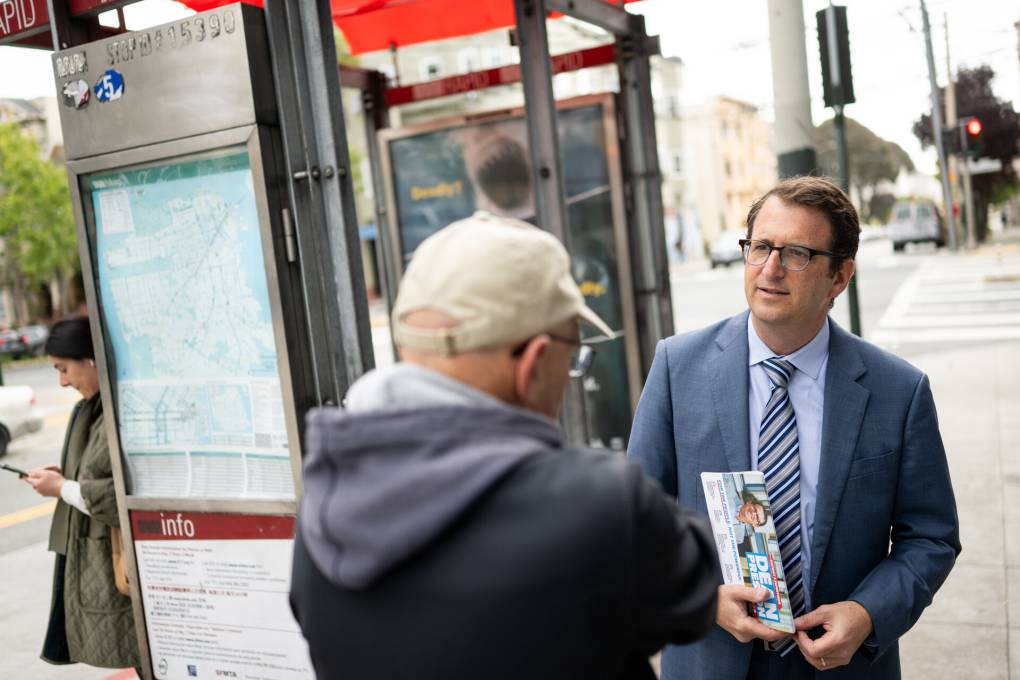
Early results in San Francisco’s District 5 have tech entrepreneur Bilal Mahmood leading incumbent Dean Preston for the Board of Supervisors. After four rounds of ranked-choice elimination narrowed it down to the two candidates, the relative newcomer is up by about 1,000 votes, leading Preston 53% to 47%.
While Preston, a democratic socialist who has represented the diverse district since 2019, held a slim lead in the first round of voting, Mahmood picked up the majority of Autumn Looijen’s and Scotty Jacobs’ supporters as they were knocked out of ranked-choice voting rounds.
Preston told KQED building a coalition of moderate support seemed to be the three other main candidates’ strategy, but he expects later batches of votes to swing more heavily toward his progressive platform.
“All these candidates pretty much ran on just attacking me, not really on any vision of their own for the district,” he said at his campaign party late Tuesday night. “That’s their strategy and we’ll see how it plays out.”
The race to represent the Tenderloin, Hayes Valley, Western Addition and Fillmore has been the most expensive supervisors’ race this election cycle — aided by a moderate PAC that raised more than $250,000 to defeat Preston.
He and Mahmood raised significant amounts of money as well, coming in at just around $500,000 each. Looijen and Jacobs added another $140,000 a piece.
More results from local San Francisco races aren’t expected until Thursday.
Recalls in Alameda County appear headed for success
So far, voters appear likely to recall Oakland Mayor Sheng Thao and Alameda County District Attorney Pamela Price. The latest results show about 65% of voters in favor of each respective recall, which would pass with a majority vote.
At an election watch party in Oakland on Tuesday night, Thao said that “Oaklanders vote late” and that she was optimistic that late drop-off ballots would be in her favor.
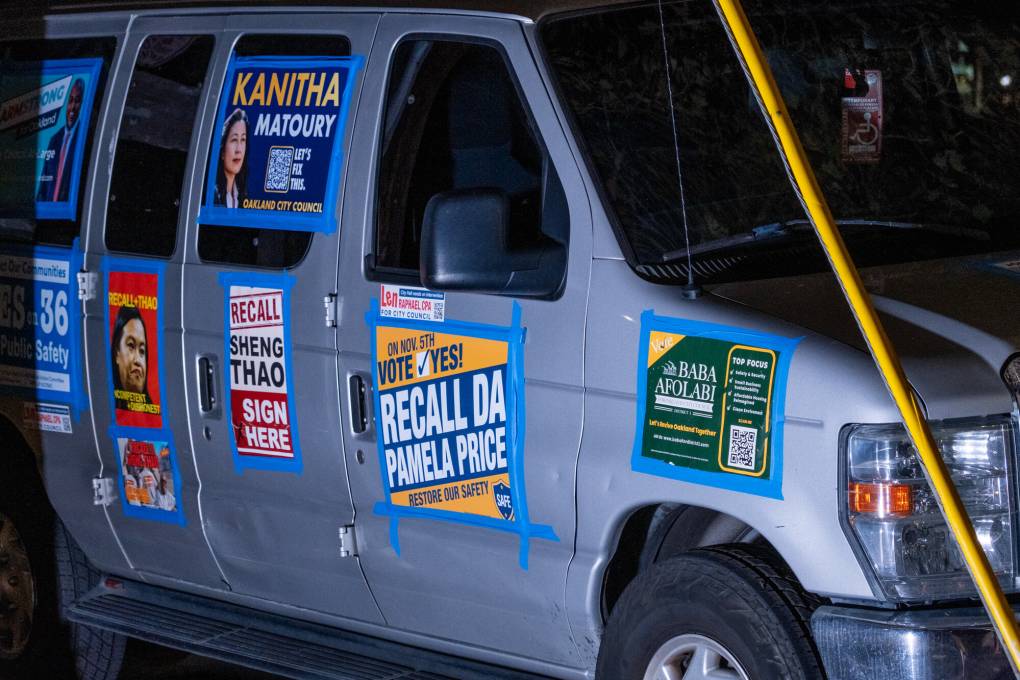
As for Price, her supporters stood by her (metaphorically) Tuesday night as election results came in.
“Our voters elected her to office, and we need to let her do her job,” said LaNiece Jones, executive director of Black Women Organized for Political Action.
Price hasn’t spoken publicly yet.
Benicia mayor leads in bid for reelection
Benicia Mayor Steve Young swept up 66.74% of the vote, appearing to defeat his opponent, Kevin Kirby, a political newcomer, who took 33.3% of the vote, according to preliminary results released Tuesday night.
Young promised to preserve the long-term character and financial health of the city. Benicia’s struggling to close an annual $6.5 million structural deficit. Young has supported efforts to enact a real property transfer tax to fund city services that support businesses.
The mayor’s contest comes at a time when local officials are questioning the city’s relationship with its largest taxpayer, Valero. On Oct. 31, state and Bay Area air regulators levied a historic $82 million fine against the company for unreported excess toxic chemical emissions at its Benicia refinery over nearly two decades.
“This penalty sends a strong message; adherence to air quality standards is both necessary and expected, and failure to do so can lead to significant fines,” Young said in an Oct. 31 press release announcing the record fine against Valero.
Young, who serves on the board of directors for the Bay Area Air Quality Management District, supported bringing a new, more aggressive executive director to the regulatory agency.
Jackie Fielder leads San Francisco District 9 supervisor race
On what appears to be a difficult night for progressives around the Bay Area, one was in a celebratory mood: Jackie Fielder, who’s leading San Francisco’s race for District 9 on the county’s Board of Supervisors.
Fielder led with nearly 60% of ranked choice votes to second-place challenger, public school teacher Trevor Chandler, with 44% at 11 p.m.
“The multi-racial, multi-generational working class movement we have been able to build has proven that San Francisco is not about doom and gloom or about naysayers, but it’s about what we can all do for the city that we love,” she said outside Bar Part Time in the Mission District, one of the neighborhoods that make up District 9, along with Bernal Heights and the Portola.
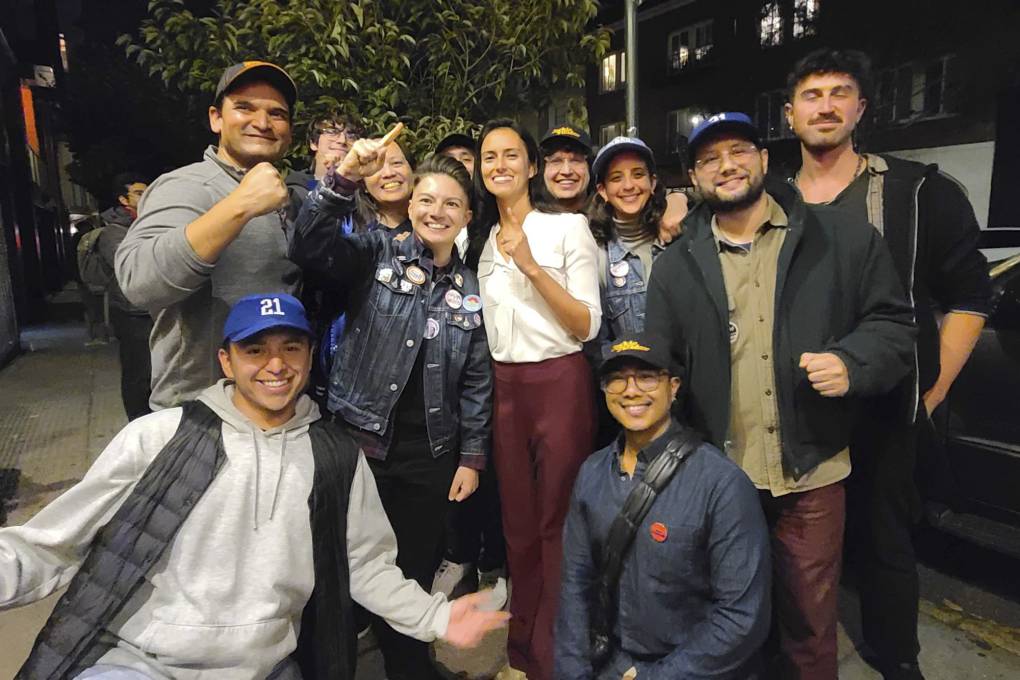
Fielder faced a difficult campaign against Chandler, who had the backing of well-financed moderate groups like TogetherSF, which also backed former interim mayor Mark Farrell, and Roberto Hernández, who has led several social justice movements in the Mission District for decades and was one of the founders of the Mission Food Hub, which fed thousands of families during the pandemic. “There’s a lot of billionaire money flowing into these different elections, and District 9 did not buy it,” Fielder told KQED. “District 9 is not for sale.”
During the past few months, KQED spoke to dozens of voters across District 9 who shared some of their top concerns: saving small businesses, many still struggling since the pandemic; public safety concerns at the 16th Street and 24th Street plazas; and expanding affordable housing.
“We need to invest in our entire public safety system, preventative measures, activate spaces like the plazas, and I’ve consistently said that I really want to bring the longtime street vendors back to Mission Street who have been a crucial part of our community,” Fielder said.
Some of Fielder’s supporters gathered at Bar Part Time shared their frustration at the national and state results, but said that Fielder’s victory gives them hope of what can be achieved in politics, especially at the local level.
“We had a really special candidate,” said Tuesday Rose Thornton, a Mission District resident and eviction defense lawyer. “But for District 9, we actually loved this candidate … we were voting for Jackie. We weren’t voting against the other guy, and that really mobilizes people.”
Betty Duong 'Cautiously Optimistic' in Historic Santa Clara County Supervisor Race
In a closely watched race for supervisor in Santa Clara County, Betty Duong is leading former San José City Council member Madison Nguyen 52% to 48% in returns released Tuesday night.
Duong, the current chief of staff to District 2 supervisor Cindy Chavez, is hoping to claim Chavez’s seat on the board.
“I feel so good and, I would say, cautiously optimistic,” Duong told KQED while describing the mood at her downtown San José election night party as “absolutely joyful.”
Duong and Nguyen are both running to make history: the winner of the election will become the county’s first Vietnamese American supervisor. District 2 falls entirely within San José, home to one of the largest Vietnamese communities in the U.S.
Politically, the two are split along familiar lines in the South Bay: Duong has the backing of organized labor, while business groups have rallied behind Nguyen.
Statewide rent control initiative fails
Voters have rejected Proposition 33, a bid to give local governments more power to regulate rents. The Associated Press called the race shortly after midnight, with the measure failing 62% to 38%.
It’s the third time in six years that voters have shot down similar attempts to roll back the Costa-Hawkins Rental Housing Act of 1995, the state law that keeps cities in check when it comes to rent caps.
Proposition 33 and the other rent control related initiative on the ballot, Proposition 34, were the most expensive measures on this year’s ballot, drawing in over $230 million in contributions between them. Proposition 34 is leading with just over 51% of the vote, but remains too close to call.
Harris watch parties wind down in Bay Area as mood deflates
Momentum wound down at watch parties in the Bay Area for Vice President Kamala Harris as election results streamed in Tuesday.
At Home of Chicken and Waffles, a restaurant in Oakland’s Jack London Square, fewer than a dozen people lingered after 10 p.m. The party was organized by Black Women Organized for Political Action (BWOPA) and cosponsored by Howard University alumni of the Bay Area, the Urban League of the Greater SF Bay Area, and Coalition of 100 Black Women.
Kimberly Mayfield told KQED’s Sasha Khokha that she was still holding out hope.
“I think it’s always darkest before the dawn,” she said, adding, “This is a country that embraced chattel slavery, so we have seen the worst of times.”
California poised to pass $10 billion climate bond
Californians appear poised to pass Proposition 4, a $10 billion climate bond to help the state prepare and adapt for the impacts of climate change. Nearly 58% of early votes favored the bond compared to 42% against the measure. The Associated Press has yet to call the race.
Proponents of the bond argued over the course of the campaign that it could prevent billions of dollars in damage from extreme storms, wildfires, drought and rising sea levels.
Evan Low holding on to hope in Silicon Valley congressional race, despite early returns showing defeat
Despite Sam Liccardo’s substantial lead in the race to replace retiring Silicon Valley Congresswoman Anna Eshoo, Evan Low was nowhere near conceding as his election night party wound down Tuesday night.
As of 11:15 p.m., Liccardo led with 59% of the vote, with Low garnering roughly 41%.
But Low spoke instead of the challenge facing him should he win.
“This is the party of Trump, that fundamentally does not believe in the constitution itself,” he said. “So how do we govern, recognizing that we lack the same type of commitment to our constitution? That is an uphill battle but one that I’m certainly up for the challenge.”
During the campaign, Low boasted more Democratic Party endorsements, including that of Gov. Gavin Newsom, but Liccardo led in the polls from the primary in March all the way to election day.
Breed defiant, Lurie optimistic as early results show him leading SF mayor’s race
As of around 10:30 p.m., early returns showed former Tipping Point CEO and Levi’s heir Daniel Lurie was leading a crowded roster of candidates vying for San Francisco mayor.
He had just over 28% of first round voters on the ranked choice ballot, followed by incumbent Mayor London Breed’s roughly 24% and Board of Supervisors President Aaron Peskin’s nearly 22%. In order to win the election outright, candidates must secure a majority of votes. If not, the race then moves through several rounds of counting until a winner emerges.
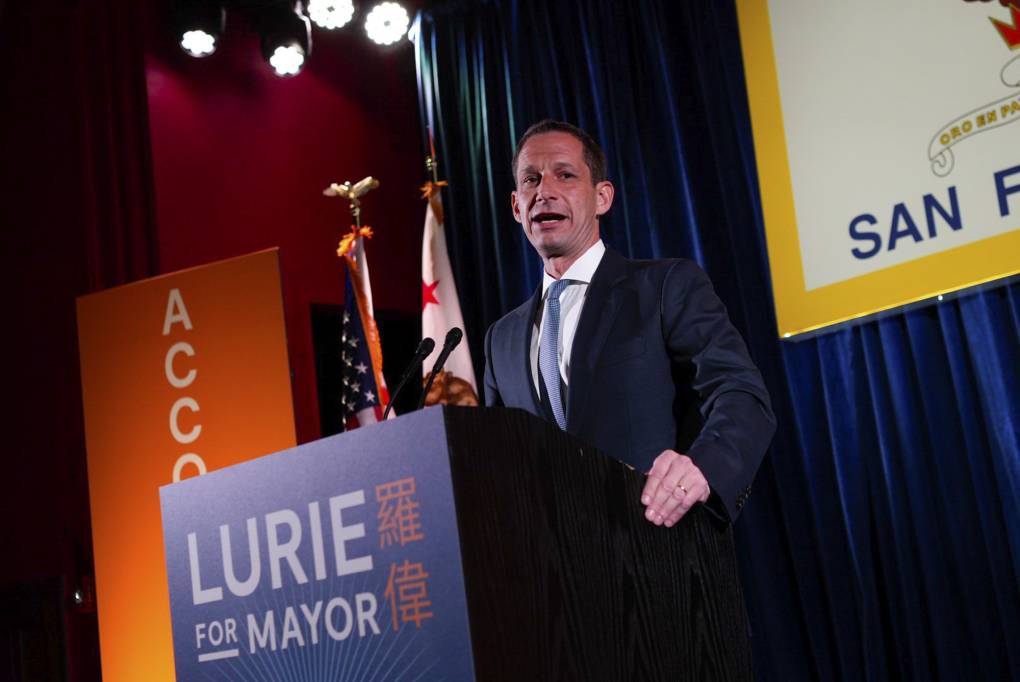
Lurie cautioned that with just two hours elapsed since polls closed, a decisive victory may take “some days to resolve” but said he was optimistic about early returns, striking a victorious tone as he spoke to supporters.
“Some have said that our campaign was underestimated, but they didn’t underestimate us,” Lurie said. “They underestimated you, the people of San Francisco who demanded change.”
At her watch party, Breed took the stage to chants of “We love you!” and “Four more years!” and said she was not yet giving up hope of a win.
“We’re still hopeful,” Breed said to a packed house at the restaurant Little Skillet, where people were gathering to watch election results roll in. “It’s going to take time to count all of these votes, there are a lot of votes in the mail, there are a lot of provisional ballots.”
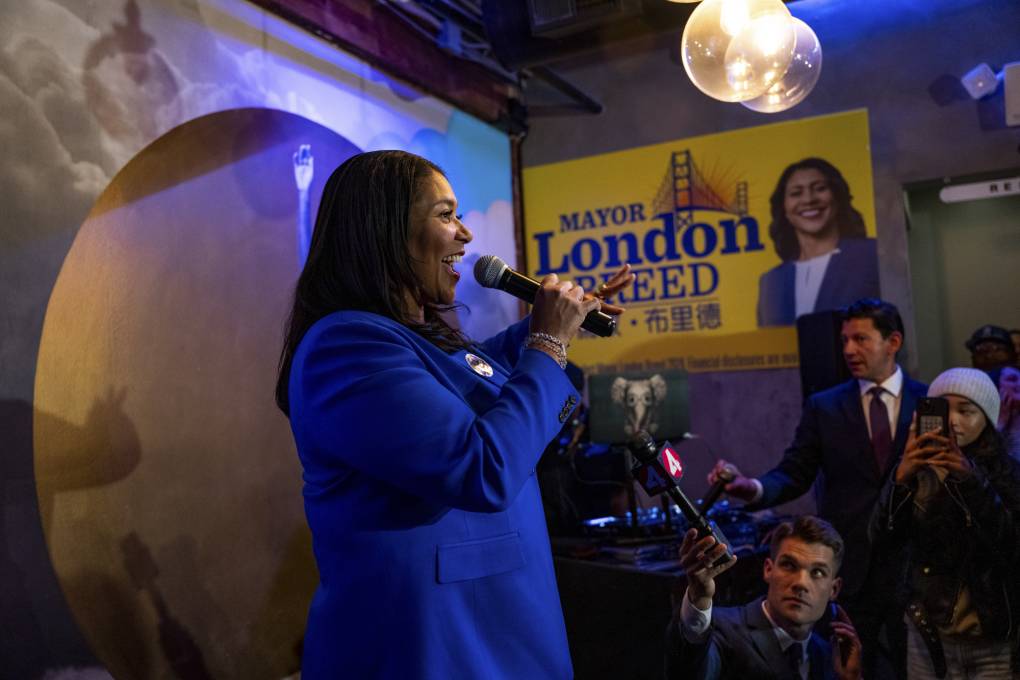
Breed recalled how, in 2018, she was behind the leading candidate on election night, “And you see me standing here right now as the mayor of San Francisco.”
When asked by reporters for her thoughts on Lurie’s lead, Breed said, “San Francisco is not for sale,” referring to Lurie’s record-breaking campaign fundraising, the majority of which came directly from his own wealth. “It’s really unfortunate and pretty disgusting.”
The incumbent took another dig at Lurie’s campaign, which has focused on ushering in new leadership and change to City Hall, by pointing out that she is the city’s only Black woman mayor while her leading opponents are all white men.
“I am the change,” she said to a room full of cheers. “Everybody else looked the same and did not look like me.”
Breed did not comment when asked about her opponent Mark Farrell’s concession in the race, which he announced late Tuesday night.
Correction: an earlier version of this post identified Lurie as CEO of Tipping Point. He is the former CEO.
Both Bay Area bond measures to build teacher housing appear headed to victory
School districts in the Peninsula and the South Bay look likely get funding to build teacher housing, according to early returns.
San José Unified School District’s Measure R is leading with 62% of voters approving the measure so far. As one of the biggest bond measures across the region, it would raise $1.15 billion for the school district, out of which about $283 million would fund affordable housing for educators and staff.
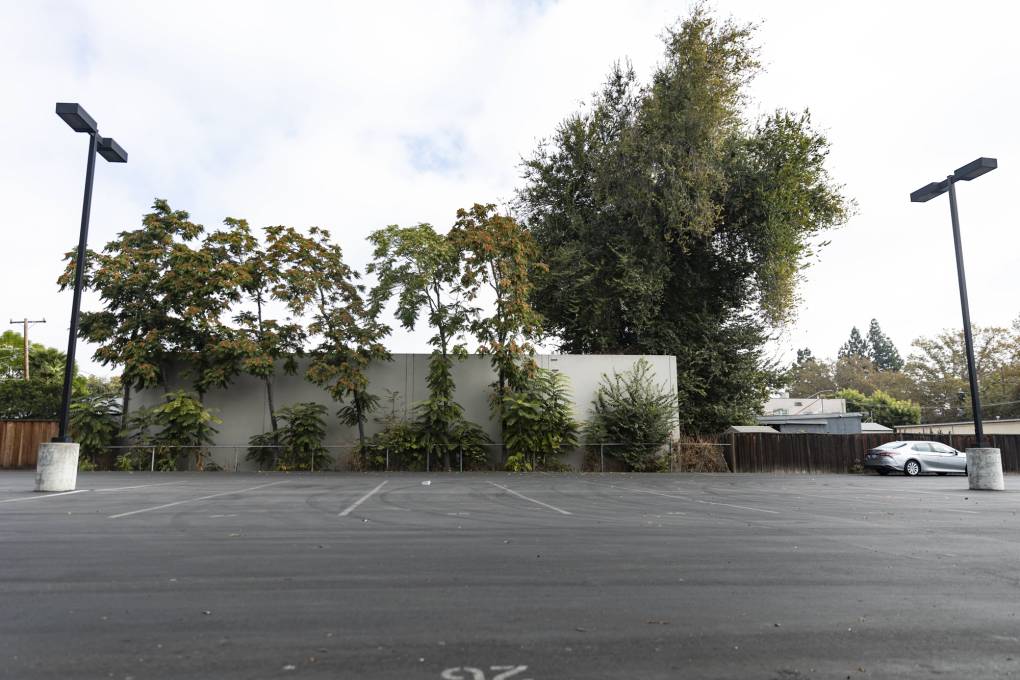
In San Mateo county, Measure K in Cabrillo Unified School District has slightly more than 60% of voters favoring it. The $153 million bond would primarily focus on funding repairs and renovations to classrooms, but some of the money could be used to build housing for staff.
The districts could also get additional funding through California’s Proposition 2, a $10 billion bond to repair schools across the state. That proposition is leading with just over 56% of voters so far approving the measure.
California voters appear to reject proposition outlawing forced labor
So far, it looks like voters are leaning toward rejecting a state measure that would’ve ended forced labor for people in prison. With 42% of the vote counted, Proposition 6 only has 47% of the electorate in support.
Prop. 6 would ban involuntary servitude as punishment for a crime. It would specifically prevent state prisons from punishing inmates who refuse to work. The proposal was included in a package of bills aimed at providing reparations to Black Californians and was placed on the ballot by the state Legislature.
On X, a number of people voiced sentiments asking “What is wrong with people?”
Supporters of the measure had argued it would ensure incarcerated people are not punished for doing rehabilitative or educational work instead of a prison job, such as cooking or cleaning. But opponents countered that if incarcerated people turn down work assignments, prisons would have to spend more money to hire people to cook or clean.
Mark Farrell concedes San Francisco mayoral bid
Coming to the stage of his election night party at a Marina District bar around 10 p.m. Tuesday amid chants of “Mark, Mark, Mark,” San Francisco mayoral candidate Mark Farrell conceded the race.
As of around 10:30 p.m., Farrell had just over 18% of the first round votes on the ranked choice ballot. That put him in fourth place behind Board of Supervisors President Aaron Peskin’s nearly 22%, incumbent Mayor London Breed’s roughly 24% and Daniel Lurie’s more than 28%. In order to win the election outright, candidates must secure a majority of votes. If not, the race then moves through several rounds of counting until a winner emerges.
“Obviously, early results are not where we want to be in this mayoral race,” Farrell said. “We are good with that.”
He urged his supporters to rally around whoever is declared the winner.
“Let’s make sure, as San Franciscans, that whoever the next mayor is, we all get behind him or her,” he said. “It is the right thing to do, as we love the city of San Francisco more than anything else in the world.”

Farrell was among the top five Democratic candidates vying to be the city’s next mayor. Tech and business leaders poured millions of dollars into the race as candidates pushed for increased public safety, changes to housing policies and increased accountability in City Hall.
Farrell had advocated for building thousands of new housing units downtown, along with “massively” increasing police and other public safety programs. He also wanted to create new tax incentives to encourage employees to return downtown, reopen Market Street to cars, and build a new park in Embarcadero Plaza.
On Tuesday, he delivered an emotional message of appreciation to his supporters.
“If I break down, it has nothing to do about the mayor’s race, it’s about who all of you are,” he said. “I see my staff, I see friends from high school, friends from grammar school, friends that were parents with in school, friends that we’ve met along the campaign staff and along the campaign. There are so many people that are here tonight, and our family, most importantly. … And, I just want to be here to say, ‘Thank you.’”
Farrell struck an optimistic note before closing out his comments for the night.
“San Francisco has everything in front of us,” he said. “Let’s pledge ourselves to the future of our city and let’s make sure we’re all in it together.”
Rent control measures getting mixed results in Bay Area cities
Rent control isn’t faring well in the statewide election, and here in the Bay Area local results appear mixed. In Berkeley, where voters faced competing rent control measures, early results show Measure BB, which would strengthen rent regulations, narrowly passing. Measure CC, which would exempt more properties from rent control and defang the rent board, looks like it’s headed to defeat, with over 60% of votes cast against it so far.
“That’s really reassuring,” said Leah Simon-Weisberg, chair of the Berkeley Rent Board. “I think the trend will continue to go that way as we know that even in Berkeley the early voters are more conservative.”
In Marin County, Fairfax’s Measure I, repealing the city’s rent control and just cause eviction ordinance, is passing by a wide margin, with nearly 70% of voters supporting it.
Meanwhile, bids to expand rent control in Larkspur, Measure K, and San Anselmo, Measure O are losing handily. San Anselmo voters also appear poised to block a rent control policy passed by city leaders by rejecting Measure N, a referendum against the ordinance.
Harris camp deflated by Trump lead with 3 swing states still up for grabs
Supporters of Vice President Kamala Harris were deflated Tuesday night, but they were not giving up hope as they streamed out of her Election Night party at Howard University in Washington, D.C. around midnight.
Former President Donald Trump held a lead in the presidential race, but results in three key swing states — Pennsylvania, Michigan and Wisconsin — remained up in the air. Harris decided not to speak as her path to the presidency shrank. Read the full story.
East Palo Alto City Council member Lisa Gauthier leading San Mateo county supervisors race
With 41% of votes counted, East Palo Alto City Council Member Lisa Gauthier is leading the race for San Mateo County’s Board of Supervisors District 4 over East Palo Alto Mayor Antonio López — 60% to 40%. Whoever wins will have the chance to shape policy across the county, from policing to jobs to solutions for flooding. The county faces significant development plans, increasing impacts from climate change and a rising cost of living — 76% higher than the national average.
California enshrines same-sex marriage in state Constitution
California voters have approved a constitutional amendment that protects gay marriage in the state.
Supporters of Proposition 3 say the landmark ballot measure enshrines the right to marriage for all and protects gay couples in the state from potential challenges to the U.S. Supreme Court decision legalizing same-sex marriage nationally in 2015. With 44% of the vote counted at 10:30 p.m. the measure was winning by nearly 63%.

“Proposition 3’s decisive win shows that Californians across the state stand united in the belief that everyone deserves to love and be loved,” said Tony Hoang, Executive Director of Equality California, in a statement.
“This victory results from the strength and resilience of hundreds of community leaders, elected officials, and organizations who joined forces to champion LGBTQ+ rights. California continues to lead at the forefront of the fight for equality, reaffirming our commitment to protect and uplift the fundamental rights of every LGBTQ+ person.”
Lateefah Simon declares “the people’s victory” in race for 12th Congressional District
Former BART board director Lateefah Simon declared victory Tuesday in her race against professor Jennifer Tran for the 12th US Congressional District.
Early returns showed Simon leading Tran 63% to 34%, what Simon called “the people’s victory.” Simon took the stage around 9:30 p.m., thanking the crowded room for having “hired” her to represent District 12 in Congress.
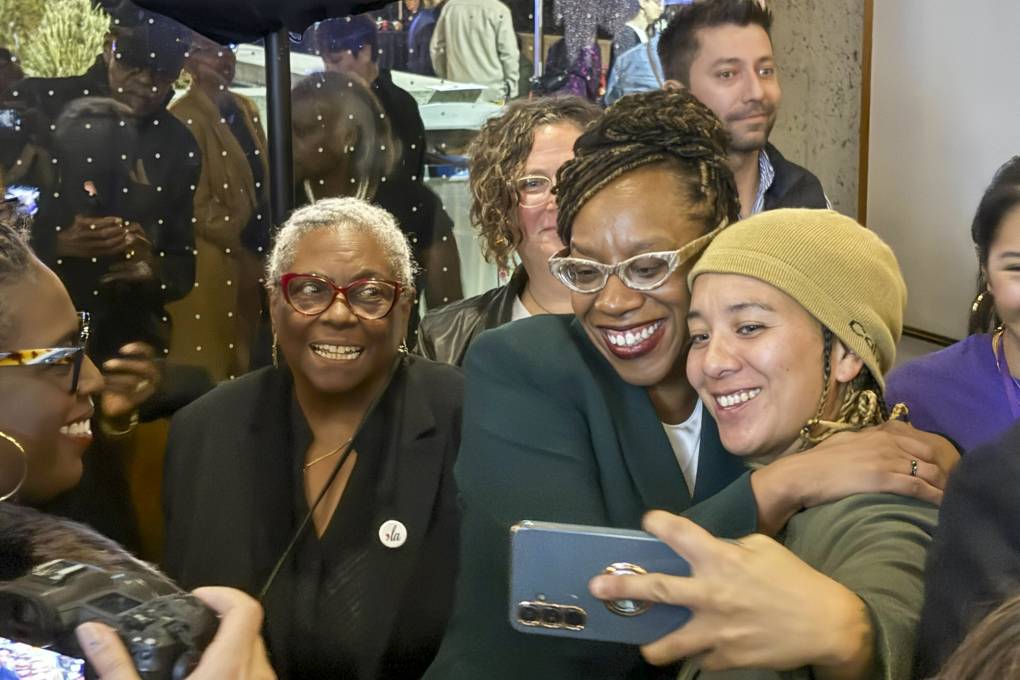
“When you send me to Washington D.C., understand that every single voice in this room and beyond — in the seven cities that we will represent — will be front and center,” she said. “There are literally over 100 languages spoken in this beautiful, beautiful district made up of folks who have come here and folks who were literally indigenous here, who literally have come together to create something new and something old, a place that could and should be beloved.”
Simon, who was born legally blind, worked for Vice President Kamala Harris two decades ago in the San Francisco District Attorney’s office. She’s remained friends with Harris ever since.
In her speech, Simon said that while she hoped to serve under a Harris administration, she had “no idea what’s going to happen in the national space.”
It’s something her supporters were thinking about too: 71-year-old Antoinette Porter of Hayward has been supporting Harris, especially through her role as a member of Delta Sigma Theta Society Incorporated, which is part of the council of historically Black sororities and fraternities called the Divine Nine. Harris’ sorority Alpha Kappa Alpha is also part of the council.
Porter said her thoughts got “low” when she thought about the presidential election and the close race between Harris and Trump.
“I’m keeping hope alive because anything can happen, but it’s an uphill battle, and I know that (Harris is) a fighter,” she said. “I would be riding a little higher than I am, but it’ll be ok.”
Oakland Mayor Sheng Thao remains defiant despite early returns supporting recall
Oakland Mayor Sheng Thao was defiant even as early voting results showed support for her recall leading by roughly 64.6% to 35.4% Tuesday evening.
Asked by a reporter for her reaction to the returns, she replied tersely: “Next question.”
Pressed to respond, she said she remained optimistic that she could hold onto her office.
“Oaklanders are going to see through the millionaire person who actually funded this recall,” she said. “We also know that Oaklanders, we vote late just like myself. I just dropped off my ballot. And so those votes have yet to be counted.”
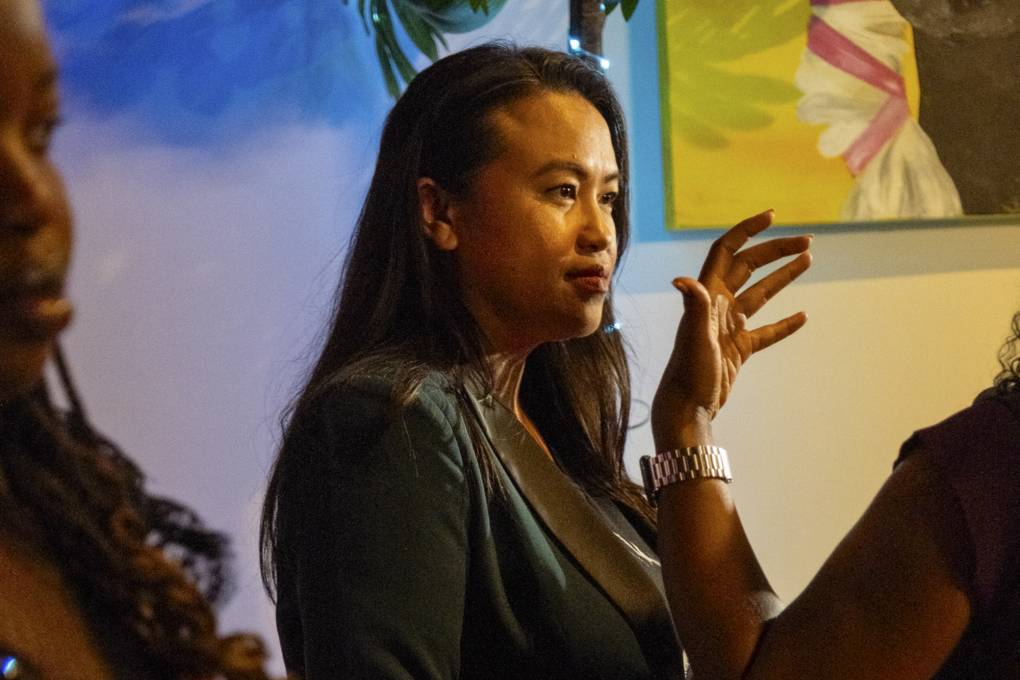
She said she would wait until the Registrar of Voters certifies the election results, which then need to be certified by the city council.
“And then once it’s certified, I will leave office immediately,” she said. “So, we’re looking at [a] December timeline.”
Thao’s campaign has emphasized the city’s drop in homicides, which she said fell to zero over the past seven weeks. Responding to criticism that the progress was “too little, too late,” she called the critique “disingenuous.”
“You know, we’ve been in office for less than two years and at the end of the day, you know, I think that it’s very disingenuous to say that it’s a little too late for me, but with other mayors that that wasn’t actually the pressure that was bestowed upon them,” she said.
She rebuffed criticism over the loss of the Oakland A’s by highlighting efforts to redevelop Raimondi Park in West Oakland, where the Oakland Ballers started their inaugural season. And she rebuked what she described as “fear mongering” among her detractors.
With Proposition 5 sliding, some local bond measures may pass anyway
In early returns, Proposition 5 appears to be sliding toward defeat, with 54% of voters rejecting the measure.
Proposition 5 would make it easier for local governments to pass bond measures that specifically fund affordable housing and public infrastructure projects by lowering the percentage of votes required from 66.67% to 55%.
“I’m happy that voters are paying attention,” said Johnny Khamis, an opponent of the ballot measure and a former San Jose city councilmember. “Prop 5 would have caused huge problems with the cost of living and future generations being able to afford to live in California. We don’t want to reduce the voter threshold for passing new taxes.”
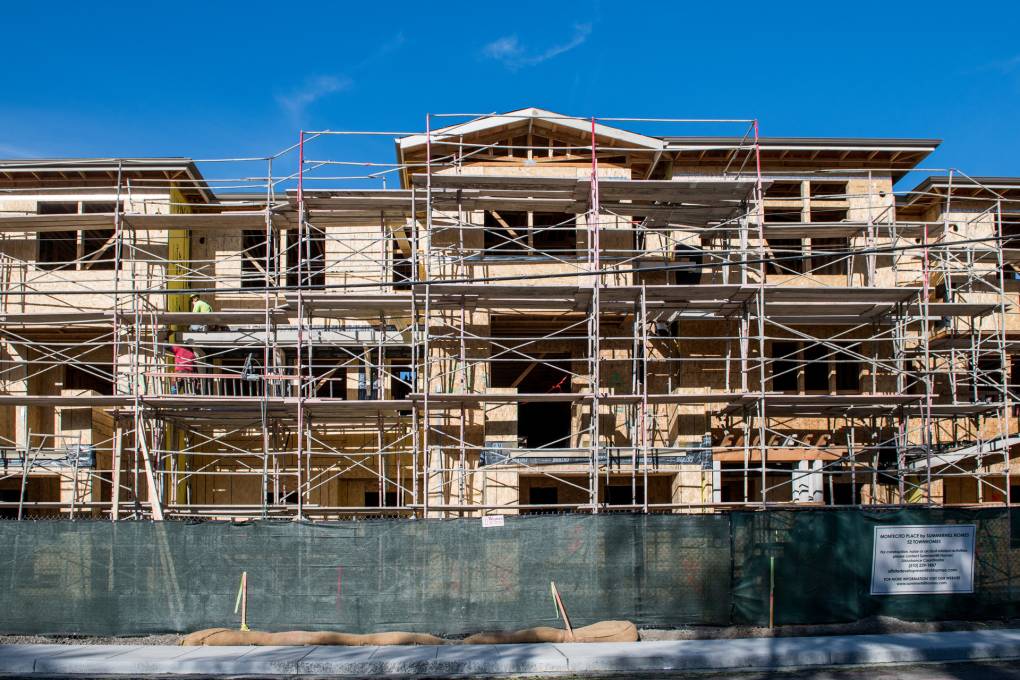
While several bond measures on county and city ballots could be impacted if the proposition passes, a few bonds appear to have support including San Francisco’s Proposition B, San Bruno’s Measure Q, and Santa Clara’s Measure I, all of which have more than a supermajority of voters so far favoring the bonds.
San Francisco's Measure K has support in early vote tallies
A ballot measure that would ban cars on 2 miles of San Francisco’s Great Highway is leading with about a third of votes counted so far: 53% in favor and 47% against. Proposition K is one of the most contentious election fights in San Francisco this election cycle and would be a big step toward turning the roadway between the Upper Great Highway between Lincoln Way and Sloat Boulevard into a public recreation space. Banning cars would allow the city to rehabilitate dunes as a buffer against sea level rise. Opponents argue that closing it will increase traffic in nearby neighborhoods.
Proposition 33 opponents take victory lap as rent control measure appears headed to defeat
Opponents of Proposition 33, which would give cities and counties more power to regulate rents, are taking a victory lap.
“For the third time, Californians have said no to extreme rent control. … This fight isn’t over — together with our coalition, we’ll work to actually make housing more accessible for Californians,” the No on 33 campaign posted on X.
Though the race hasn’t been called, the measure is losing by a wide margin, with nearly 60% of voters rejecting the measure in early returns.
“We’re glad and relieved that the voters of California have not made our housing crisis worse,” said Russell Lowery, executive director of the California Rental Housing Association, which he said raised over $3 million to support the No campaign. In all, opponents spent over $120,000 to defeat the initiative.
Former San José mayor Sam Liccardo leading in Congressional District 16 race
Former San José Mayor Sam Liccardo is leading in early voting returns Tuesday night in the race to fill U.S. Rep. Anna Eshoo’s 16th Congressional District seat in Silicon Valley.
As of 9:40 p.m., Liccardo, a Democrat, had nearly 59% of the vote, compared to fellow Democrat Evan Low with about 41%. The Associated Press had not yet officially called the election in Liccardo’s favor.
The mood was jubilant at Liccardo’s election watch party at Suspiro, a Spanish and Peruvian restaurant in San José’s Santana Row. At its peak, about 200 people filled the restaurant’s small space. Liccardo was cautiously optimistic about his prospects.
“So far so good. We’ve got a lot of votes to count,” Liccardo said, adding that he would wait to officially celebrate until the registrar called the race or Low conceded.
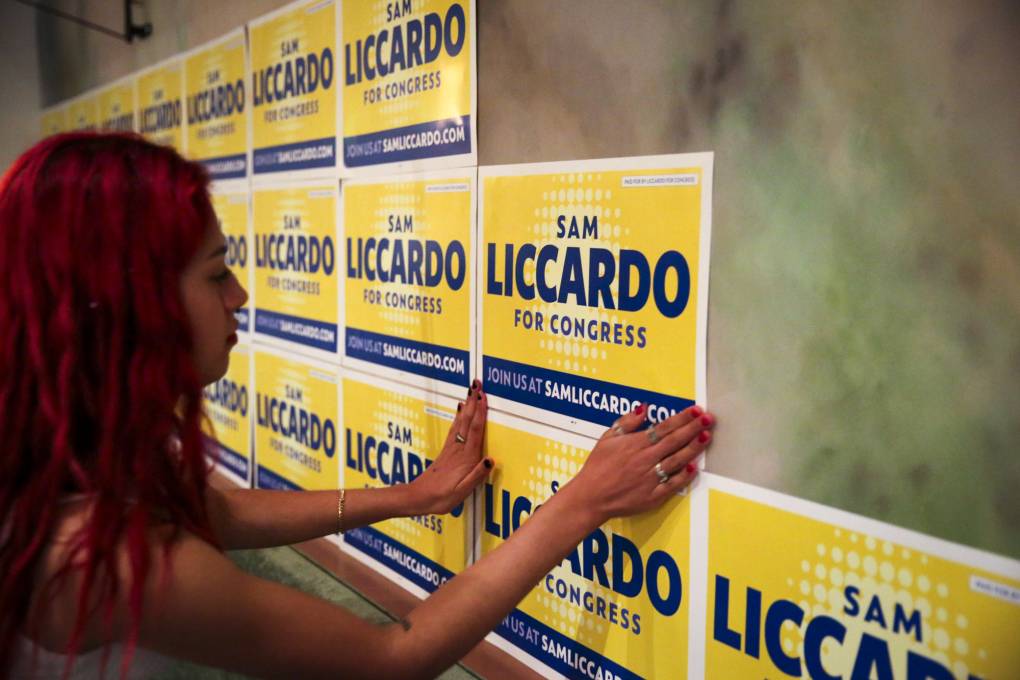
If he is elected, Liccardo vowed to reach across the political aisle.
“We have to first start with an appreciation that we are all Americans, and we are all facing massive challenges together,” he said. “My hope and my fervent effort will be about how we can reach across the aisle regardless who the president of the United States is, to try to build relationships of trust, to enable us to tackle our biggest challenges, because we cannot do it while we’re divided.”
But Liccardo said he was concerned about the prospect of a second term for former President Donald Trump, which he compared to civil wars, economic depressions and other times of strain.
“We have found a way, somehow, time and time again, to find the better angels of our nature, to pull the country together in the toughest times,” he said. “This could well be one of those tough times. And we will need to find a way to tap that reserve of strength that is so uniquely American that has gotten us through every pandemic and every great challenge.”
California voters approve Proposition 36
California voters on Tuesday approved a tough-on-crime ballot measure that would allow prosecutors to pursue felony charges against repeat offenders for shoplifting or drug possession.
The Associated Press called the race just before 9 p.m., with an early tally of votes showing more than 70% support for the measure.
Read more from KQED’s Julie Small and Marisa Lagos here.
Californians choose to secure Medi-Cal funding
Californians have passed Proposition 35, with more than 67% of voters approving of the measure.
In essence, Proposition 35 promised to secure Medi-Cal funding, but left voters to weigh the trade-offs of budget stability and flexibility.
Californians took that deal, cementing the state’s tax on managed-care organizations and directing an estimated $7 billion to $8 billion each year exclusively to Medi-Cal.
The funds are meant to improve access to primary care, specialty care, mental health services, and prescription drugs, as well as, enhance provider availability and reduce patient wait times.
Lurie leading San Francisco mayoral election in early returns
San Francisco mayoral candidate Daniel Lurie led a crowded field of candidates in early voting returns Tuesday, according to the county’s registrar of voters.
Lurie had nearly 29% of the vote, trailed by incumbent Mayor London Breed with nearly 25% of the vote, Board of Supervisors President Aaron Peskin with just over 21% and Mark Farrell with about 18%. All other candidates had a less than 3% share.
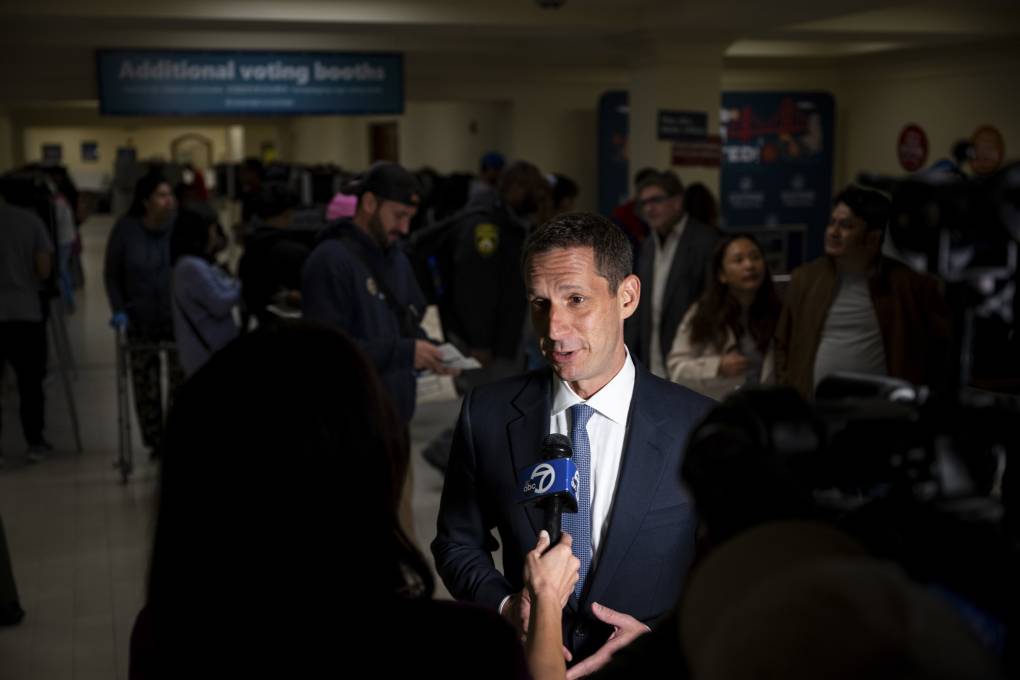
San Francisco resident Fennel Doyle said corruption within the city weighed heavily on her mind in her decision to support Lurie. Breed’s administration was rocked in the months leading up to the election after the director of the San Francisco Human Rights Commission resigned amid allegations of problematic spending. Farrell also announced the day before the election that he would pay the largest elections fine in the city’s history.
“That was infuriating, and I just felt a lot of things were unacceptable,” Doyle said. “Really, for me, a fresh start is really what we need right now.”
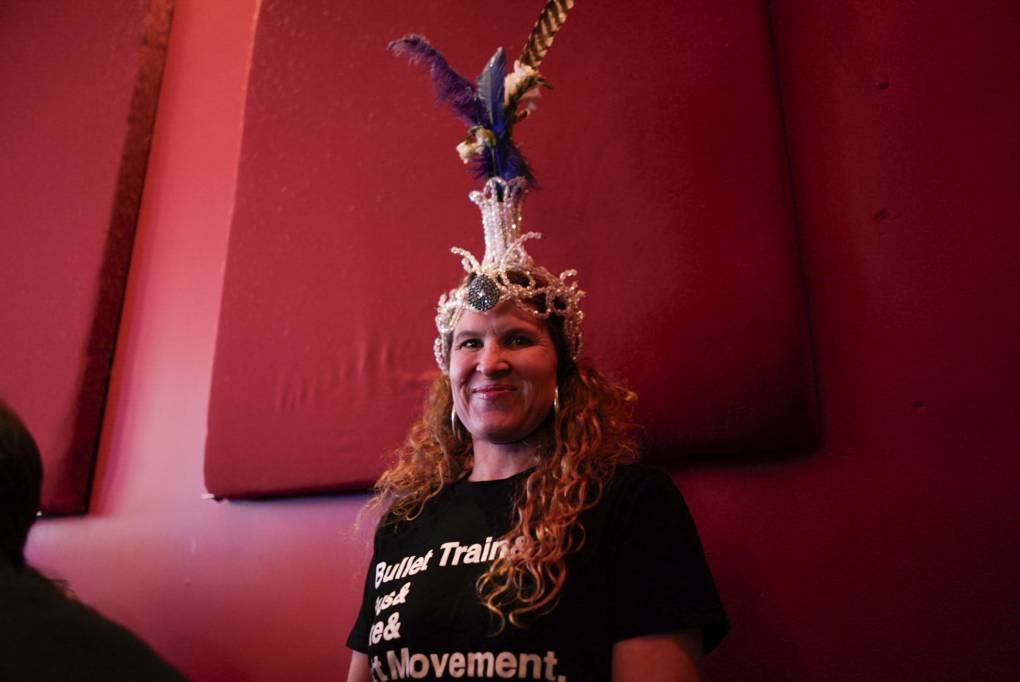
Maxwell Szabo, a spokesperson for Lurie’s campaign, said Lurie’s persona as an outsider bringing change helped boost him in the polls in the weeks leading up to Election Day.
“He has experience working with City Hall, he’s just not a creature of City Hall,” Zabo said. “And I think that that is a message that really resonated with folks.”
Joe Arellano, Breed’s campaign spokesperson, urged patience as more election results rolled in. Because of ranked choice voting, Arellano said the campaign remains hopeful Breed will stay competitive in the race. In order to win outright, Lurie must secure a majority of votes. If not, the race then moves through several rounds of counting until a winner emerges.
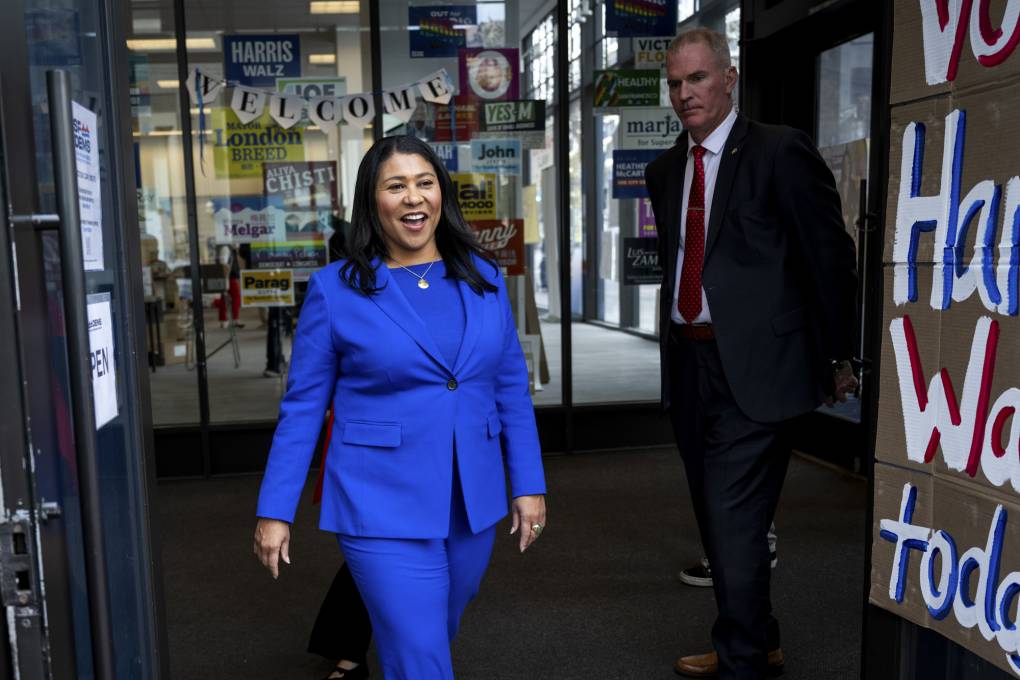
“I don’t think we expect any of us to get any kind of solid result tonight just because of ranked choice voting,” Arellano said at Breed’s watch party at Little Skillet. “So, this is really more about celebrating what has been an arduous campaign for everyone involved.”
The candidates are vying to oversee the city’s 800,000 people and its nearly $15 billion budget at a time when tech and business leaders are pouring millions of dollars into local elections and efforts to influence public safety, housing development and accountability in City Hall.
Lurie, who started the anti-poverty nonprofit Tipping Point, has never held an elected office or a position in government before. The native San Franciscan leaned into that background throughout his run for mayor, casting problems like homelessness, corruption and crime as a product of dysfunctional City Hall insiders.
Proposition protecting same-sex marriage takes early lead
California voters appear poised to approve Proposition 3, a constitutional amendment aimed at protecting gay marriage in the state.
With 40% of the vote in, 62% of voters are in favor of Proposition 3. Supporters say the measure will protect gay couples in the state from potential challenges to the Supreme Court decision legalizing same-sex marriage nationally in 2015.
Sonoma voters reject Measure J
Early results in Sonoma County show that voters have rejected Measure J, a closely watched initiative that would have drastically reshaped farming in the historically agricultural county.
Read more from KQED’s Gabe Meline here.
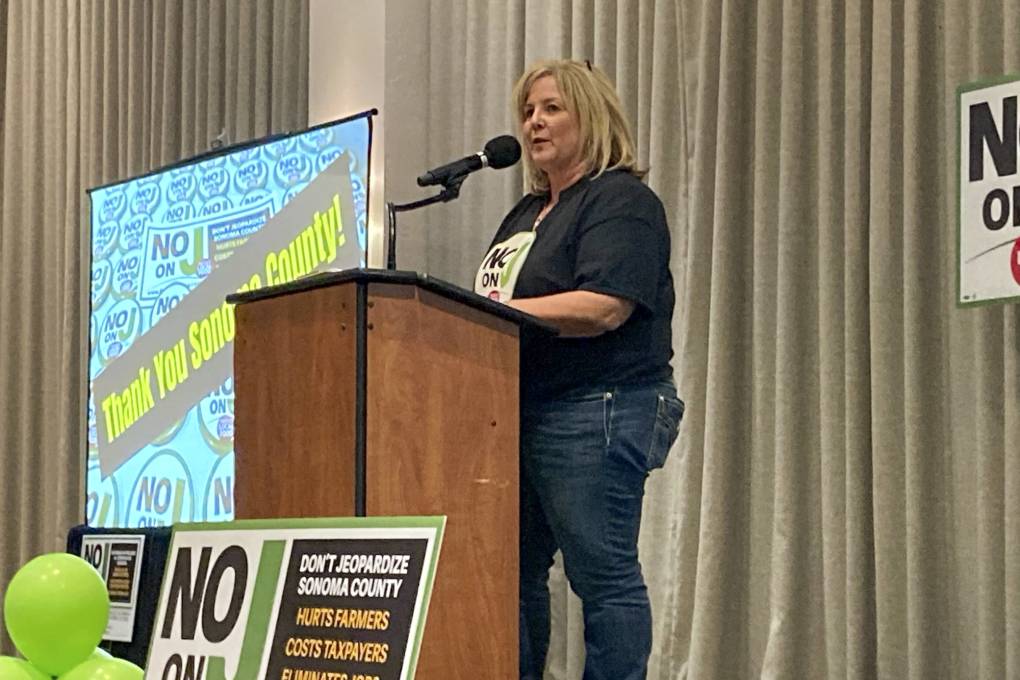
California voters show support for $10 Billion school bond measure
A $10 billion bond to upgrade aging school facilities in California is leading in early returns.
As of Tuesday night, Proposition 2 has garnered 55% of the vote, with nearly 20% of votes counted. It needs a simple majority to pass.
Proposition 2 would provide $8.5 billion to K–12 schools and $1.5 billion to community colleges to fix, upgrade or build facilities. The state will provide matching grants for new construction and renovation projects, and will pay a greater share of costs for school districts in lower-income areas.
Supporters say the state’s school renovation fund is running low, and more money is badly needed to modernize classrooms to ensure students can learn in clean and safe environments.
Early returns show support for recall of Alameda County District Attorney Pamela Price
Early voting returns Tuesday showed 64% of voters supporting the recall of Alameda County District Attorney Pamela Price.
At the Buffet Fortuna in San Leandro, where supporters of the recall were gathered, cheers erupted after the initial results were posted. Hosted by Save Alameda For Everyone (SAFE), the room was packed with family members of people killed in Alameda County as photos of their loved ones lined the walls.
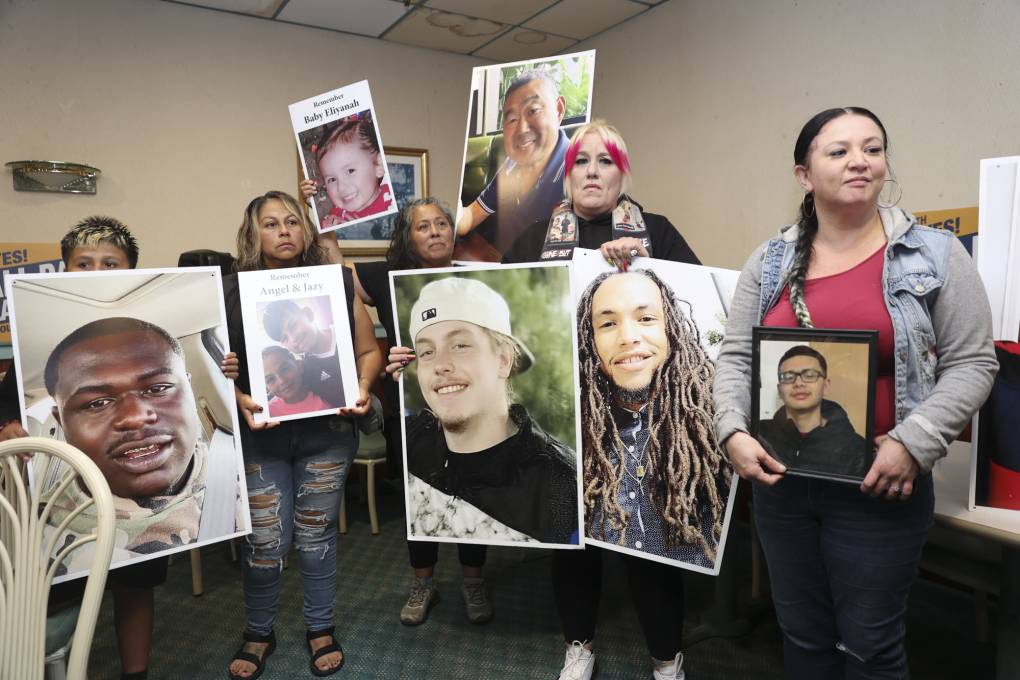
Erika Galavis, whose two nephews, Angel and Jazzy, both Berkeley residents, were killed at a house party in North Oakland in 2022, echoed a sentiment shared among many of Price’s detractors: that her election led to turnover in the office causing confusion, frustration and feelings of abandonment. In her nephew Angel’s case, Galavis said Price didn’t press charges on two of the suspects because they were minors.
“She’s not doing her job, and she’s letting a lot of criminals go,” Galavis said. “I want her to leave the office so we can get a little bit more justice for the victims right now.”
Initial returns may change.
Oaklanders weigh in on Mayor Sheng Thao recall
Oakland voters told KQED on Tuesday they had mixed feelings about the recall of Mayor Sheng Thao, whose first two years in office have been marked by controversy.
Criticism of Thao has been amplified by the loss of the Oakland A’s, the sale of the city’s portion of the Coliseum, the firing of former Oakland Police Chief LeRonne Armstrong, the city’s looming fiscal crisis and a June FBI raid of Thao’s home.
At an NAACP election night watch party, Cynthia Adams, president of the organization’s Oakland chapter, was unequivocal in her support for the recall, placing much of the blame for the city’s woes at Thao’s feet.
“Oakland is dying right about now,” Adams said. “Even though we might have people saying and feeling that it’s not. But it is dying, and we need hope.”
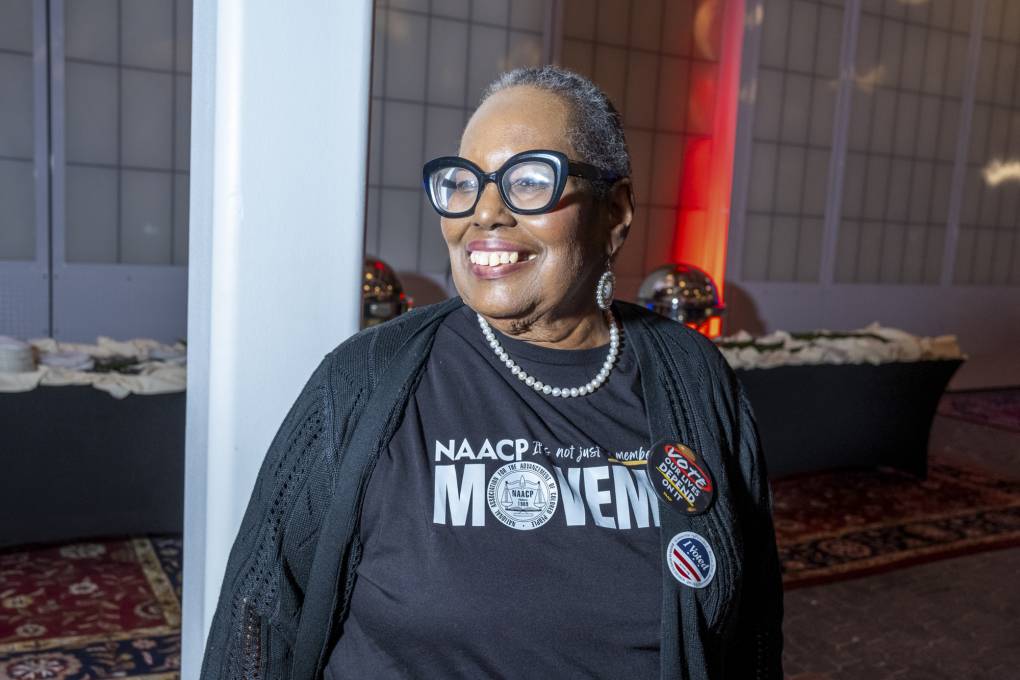
Though still in support of the recall, Oakland resident Charla Blackmon was more forgiving, saying she thought Thao was in over her head.
“The job is beyond her,” Blackmon said. “She may have the education, she may have some of the experience, but she does not know how to execute the information that she has.”
Able to do the job or not, Oaklander Tarita Thomas said that was not reason enough to recall Thao. Though she said she doesn’t support the mayor or approve of her job in office so far, she voted against the recall.
“When we vote someone in, we vote that person in,” Thomas said outside the René C. Davidson Courthouse in Oakland. “Voters have a responsibility to research people to understand who we’re voting for, what their history is, why, and then make that choice, and whoever gets in there fairly should have an opportunity to do their job.”
If Oakland voters recall Thao, the City Council president would normally serve as interim mayor until the city holds a special election to select a replacement. But Councilmember Nikki Fortunato Bas holds that office and is running for Alameda County’s Board of Supervisors. If that happens, there are a number of possible scenarios for who would assume Thao’s place.
Seeking distraction as you wait for results? Try these Tiny Desk concerts
Polls have just closed in California, and election results from state and local measures are already coming in.
But the U.S. presidential race remains up in the air, and with the seven most-watched swing states still not called, these election results could take a while.
To keep your eyes and mind occupied while you wait, NPR has compiled a list of classic Tiny Desk Concerts — their ever-popular concerts filmed at NPR HQ in Washington, D.C. — to watch, including Chappell Roan, T-Pain and Adele.
Polls close in California
Polls are now closed in California. So when will we get results for California races, propositions and measures?
The first batch of results, which are from mail-in ballots received before Election Day, are typically posted within minutes. As the evening wears on, counties will add ballots cast in-person. Additional vote-by-mail ballots and those placed in drop boxes close to or on Election Day will be added in the days and weeks to come.
Read more on how election officials can report results so quickly, and how long vote-counting is likely to take.
Two mayoral candidates promise to bring economic stability to Benicia residents
The next mayor of Benicia will shape the long-term character and financial health of a city struggling to close an annual $6.5 million structural deficit.
Incumbent Steve Young favors a real property transfer tax to fund city services that support businesses, while opponent Kevin Kirby wants to bring new revenue streams to Benicia.
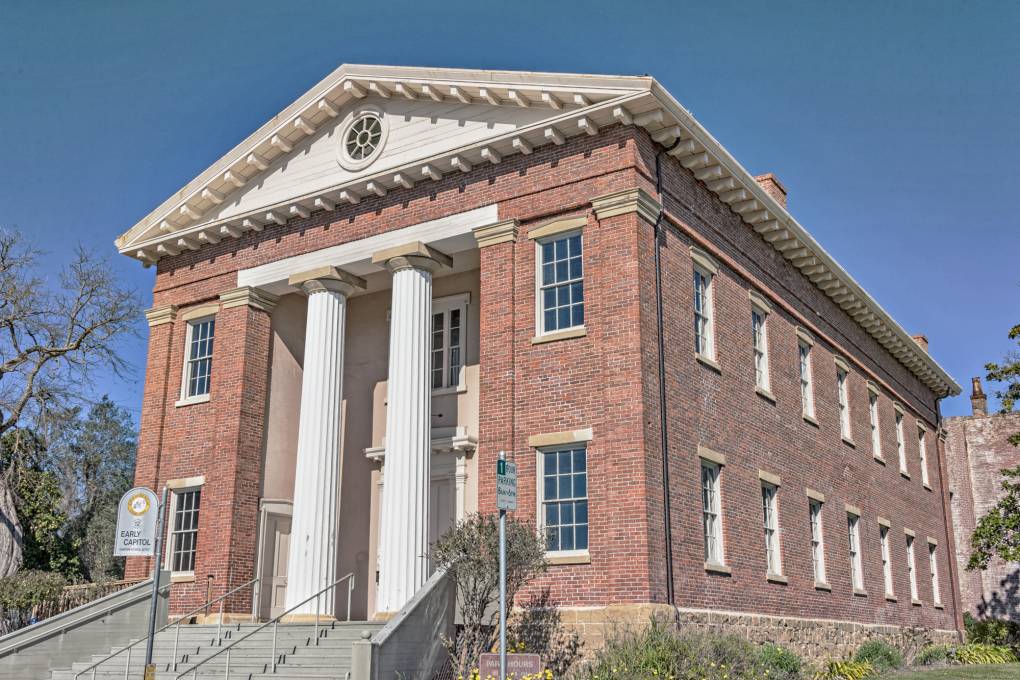
The mayor’s contest comes at a time when local officials are questioning the city’s relationship with its largest taxpayer, Valero. On Oct. 31, state and Bay Area air regulators levied a historic $82 million fine against the company for unreported excess toxic chemical emissions at its Benicia refinery over nearly two decades.
Will voters OK borrowing $10 billion to upgrade schools?
California voters are deciding on whether to borrow $10 billion in bonds to fix or upgrade aging school facilities.
Unlike many other states, California doesn’t pay to upkeep more than 10,000 public K–12 schools and 116 community colleges through a permanent funding stream.
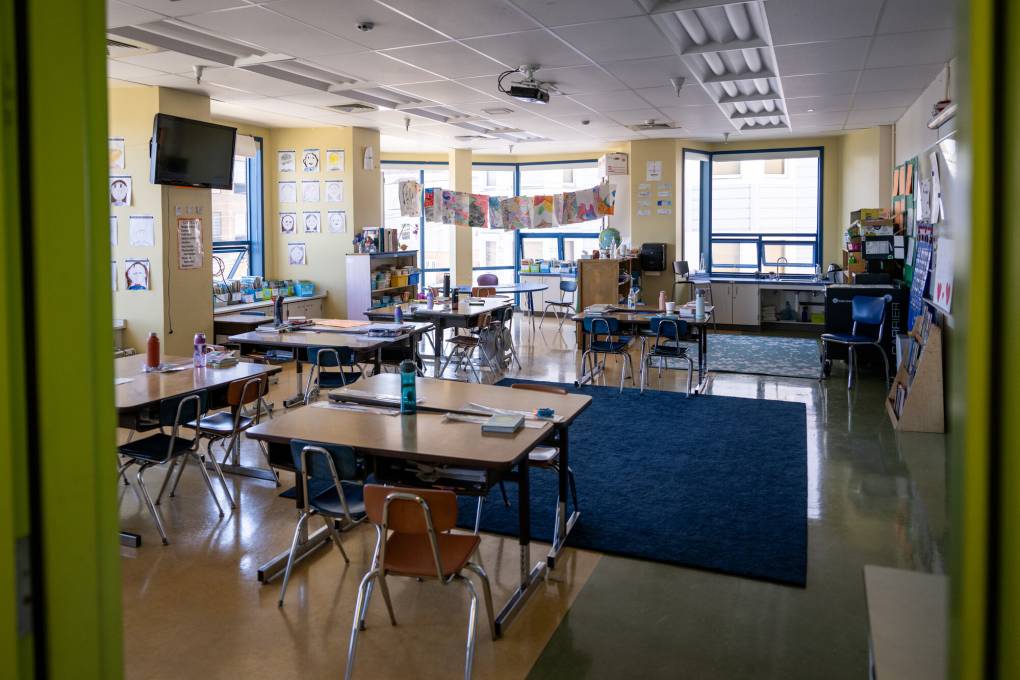
The money comes from state and local bonds, which must be approved by voters. They rejected the last major school construction bond — a $15 billion proposal — in 2020. As the state’s school repair fund runs nearly empty, supporters of Proposition 2 hope voters could stomach a lower price tag this election year.
According to polling from the Public Policy Institute of California, 52% of likely voters say they would vote Yes on Proposition 2 and 46% would vote No.
Berkeleyans cast ballots in city’s first youth vote
For the first time, 16- and 17-year-olds in Berkeley and Oakland are able to vote for school board candidates. On Tuesday, Berkeleyan Liam Farrell made sure to cast a last-hour ballot at the René C. Davidson Courthouse in Oakland before polls closed for the night.
Farrell said he felt young people are often treated in a very patronizing way, “as if we’re completely mindless.” Being able to vote on issues that affected him personally was significant.
“Youth are much more aware of what is going on than many would think,” Farrell said. “So, I really appreciate being given the opportunity to utilize some control over things that affect us very directly.”
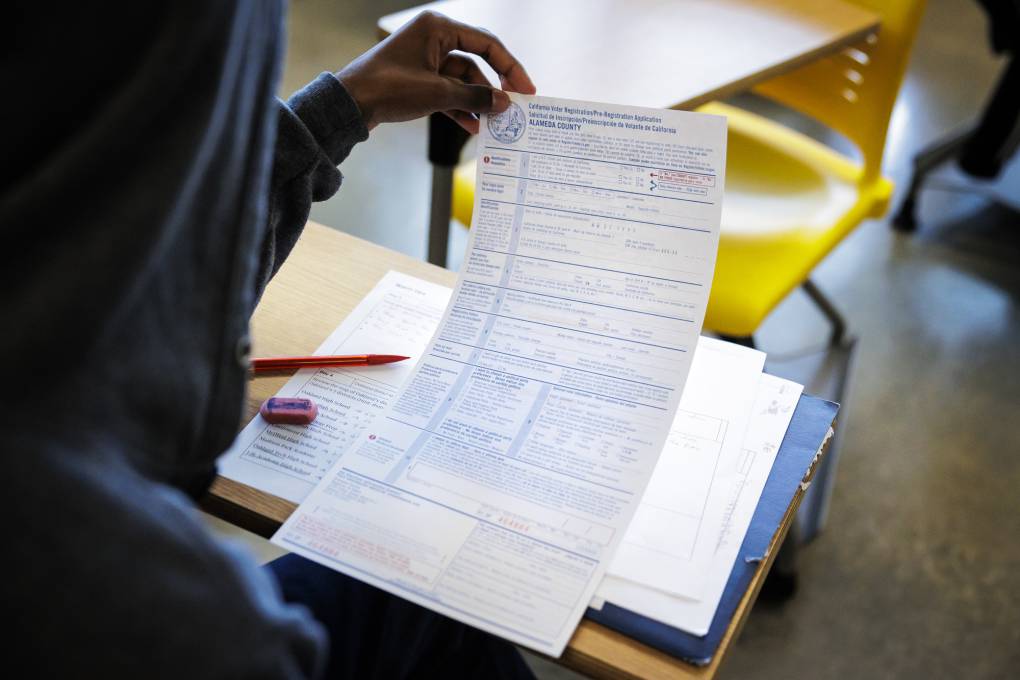
According to the Alameda County Registrar’s Office, more than 1,400 youth have registered to vote in Oakland and Berkeley school board races.
The change is part of a regional movement to expand youth voting rights. In Albany, voters on Tuesday are deciding whether to allow 16- and 17-year-olds to vote in all municipal and school board elections.
For Farrell, budget concerns and the treatment of trans students within the Berkeley Unified School District were top of mind. Farrell is a student at the Berkeley Independent Study program, where a physical education class he enjoyed was facing the ax.
“So, candidates who mentioned focusing on budget cuts around areas that hopefully wouldn’t impact the day-to-day lives of students or students’ ability to succeed as much were definitely ones that I was more inclined towards,” he said.
Voters weigh making Medi-Cal funding permanent
Proposition 35 promises to shore up funding for Medi-Cal. At its core is an obscure tax on health insurers.
The state uses the tax revenue to draw federal matching funds, effectively doubling its impact, and applies that money to Medi-Cal services. But the tax is set to expire in 2026. Proposition 35 would make the tax permanent and restrict California lawmakers from reallocating those funds.
However, critics warn that the proposition’s spending mandate constrains the state’s budget, and such restrictions should be managed by policymakers, rather than by voters through a ballot measure.
Excitement, anticipation at Harris HQ in Washington, DC
Thousands of people gathered Tuesday at Howard University, Vice President Kamala Harris’ alma mater and the scene of her election night watch party.
The mood was jubilant there, as Harris supporters watched large screens projecting CNN’s coverage of election returns and members of the Divine Nine, a group of historically Black fraternities and sororities, danced and put on musical performances.
Jordan Newsome of the Xi Chapter of Kappa Alpha Psi told KQED politics correspondent Marisa Lagos that he was there to represent his fraternity and support Harris.
“We like to show that we’re unified, we have the same goal in mind,” he said. “We’re just trying to show that our image goes beyond achievement. Hence the motto of Kappa Alpha Psi Fraternity Incorporated: ‘Achievement in every field of human endeavor.’”
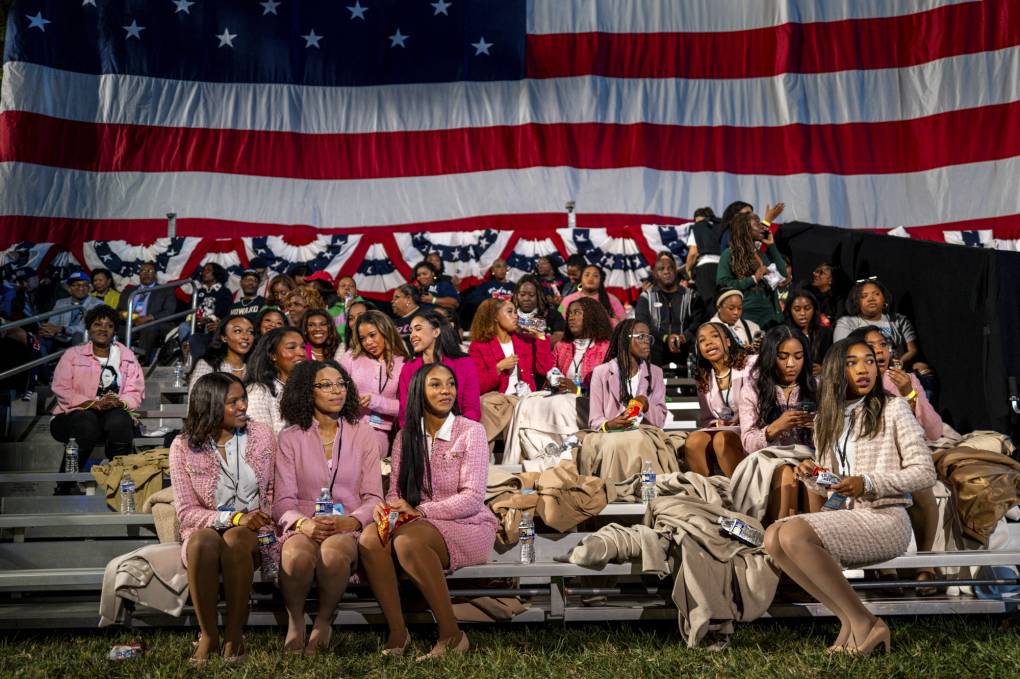
For fellow fraternity member, Brandon McCaskill, it was exciting to see a former Howard graduate running for the nation’s highest office.
“It’s extremely encouraging and exciting for all students to see somebody that looks like us, that’s been in our shoes, that’s walked in our yard, sat in our classrooms, about to be, hopefully, the president of the United States,” he said. “It’s a beautiful thing to see.”
The president of the college spoke earlier in the evening, but many were waiting for Harris, who — they hoped — would be there to deliver a victory speech.
Will California change course on criminal justice reform?
California voters could choose to partially undo 10-year-old criminal justice reforms aimed at reducing mass incarceration — or they could reject a measure seeking to channel public frustration over homelessness, drug trafficking and property crimes into harsher sentences for repeat offenders.
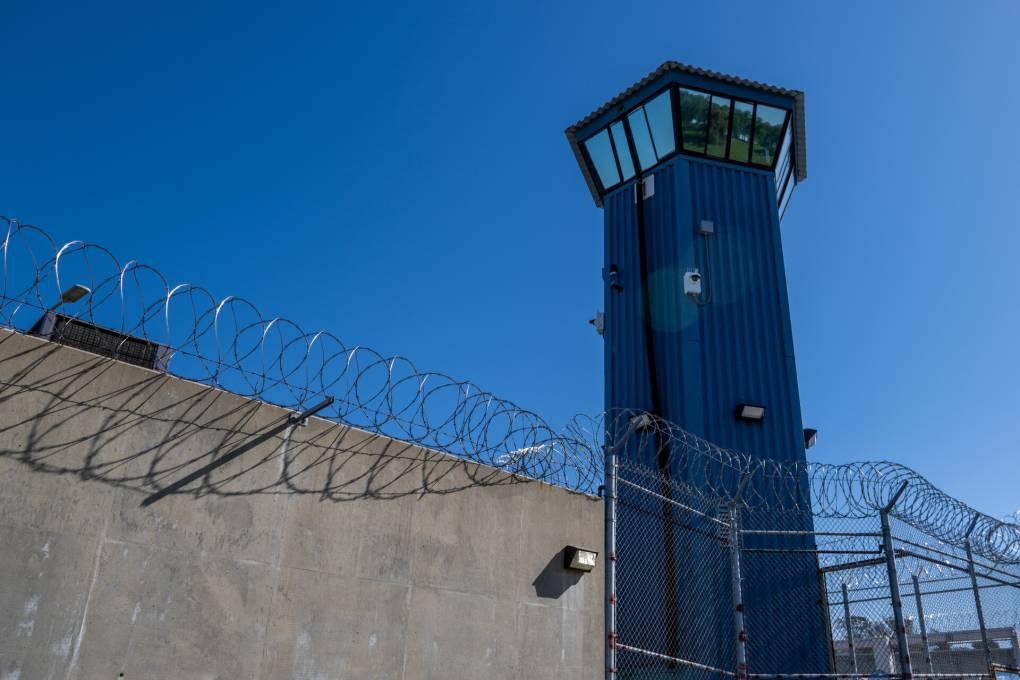
If Proposition 36 passes, as it’s expected to, the margin of victory will be a measurement of how much of the electorate has shifted away from a movement pushing alternatives to incarceration that has prevailed in California over the past two decades.
The proposition is also projected by the nonpartisan Legislative Analyst Office to increase criminal justice spending by up to hundreds of millions of dollars each year, because it would result in more people being prosecuted and sent to prisons and jails for longer sentences.
USF voting recruiter: ‘Set aside your partisanship’
At the University of San Francisco community center Tuesday, well over a hundred students gathered, watching televisions, some hugging each other, others petting therapy dogs, as they waited for polls to close.
Elena Jimenez, a recruiter with the student organization USF Votes, was there to help her fellow students with last-minute questions about where and how to vote.
“You almost have to set aside your partisanship and just turn it into, ‘How do we empower the community to feel most prepared and most supported as they go into the voting?’” she told KQED’s Gilare Zada.
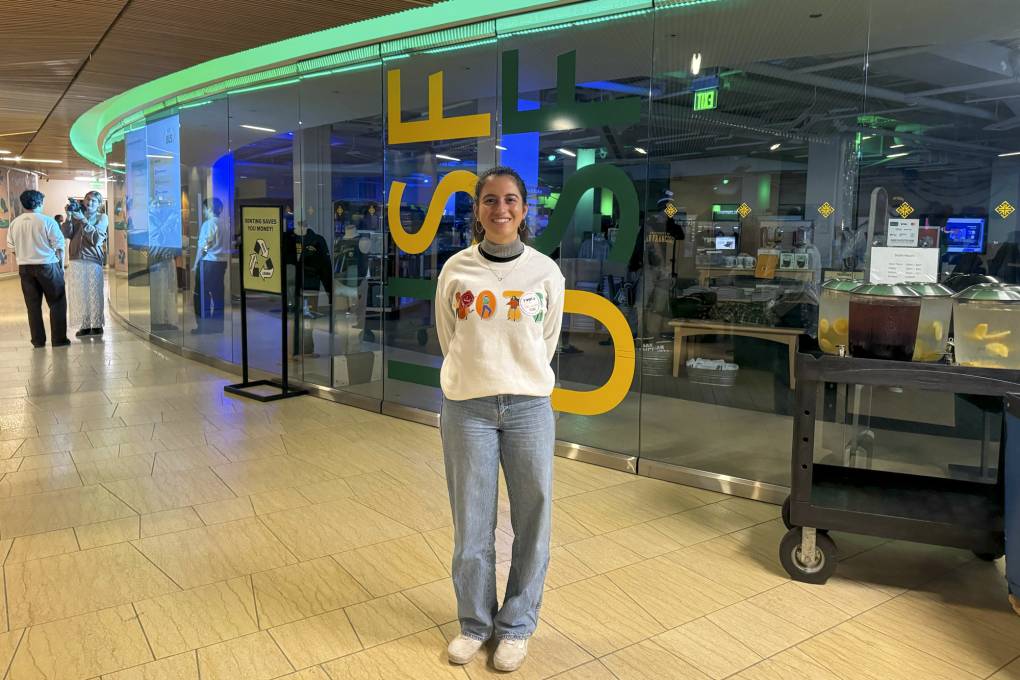
The 19-year-old political science major from San José said that while many of her fellow students were experiencing a lot of anxiety around the presidential election, there was a lot of excitement, too. Speaking for people within her own community, Jimenez said issues of immigration, access to health care, housing, and education were at the forefront of voters’ minds.
“They impact you personally, but they also impact community members,” she said.
As polls neared closing time, Jimenez said participating in an organization whose impact extended beyond party lines partly allayed her anxiety about the future.
“You’re part of a greater network, you’re part of a greater team,” she commented, adding, “Being able to pitch in has just been a really joyful, sometimes anxious, sometimes tense atmosphere, but definitely one that’s overall very meaningful.”
Statewide minimum wage boost polling close to deadlocked as voters decide
California voters are deciding on whether an estimated 2 million of the lowest-paid Californians should get a modest raise — to $18 an hour by 2026 — up from the current minimum wage of $16 an hour.
The California Legislative Analyst’s office found Proposition 32 could increase or decrease costs for state and local governments due to a more expensive payroll, but also yield savings due to fewer people enrolling in Medi-Cal and other safety net programs.
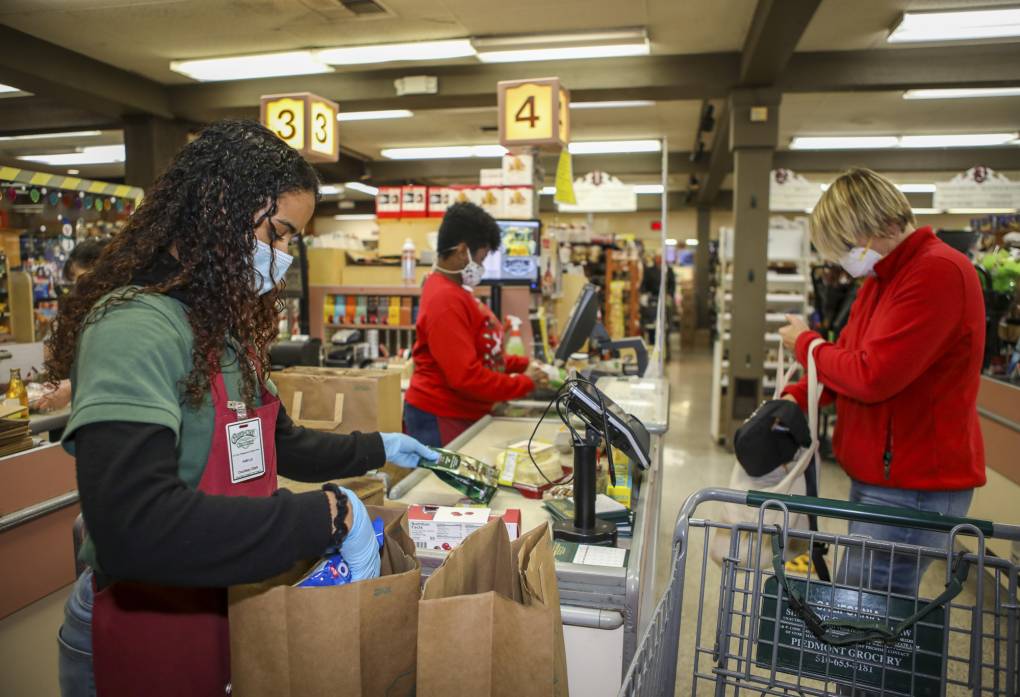
Most economic studies show minimum wage raises have little or no impact on jobs, although they can lead to small increases in the price of products and services.
Voters in red and blue states across the country have in recent decades approved dozens of minimum wage raises. But support for Proposition 32 in California hovered at just 47%, according to two recent polls.
Rep. Adam Schiff is worried about ‘MAGA election deniers’
U.S. Senate candidate Adam Schiff is ready to “turn the page on this pretty dark chapter,” and he’s confident Tuesday’s election will go in Democrats’ favor.
But it could be a bumpy road to victory, the Los Angeles-area representative said in an interview with KQED.
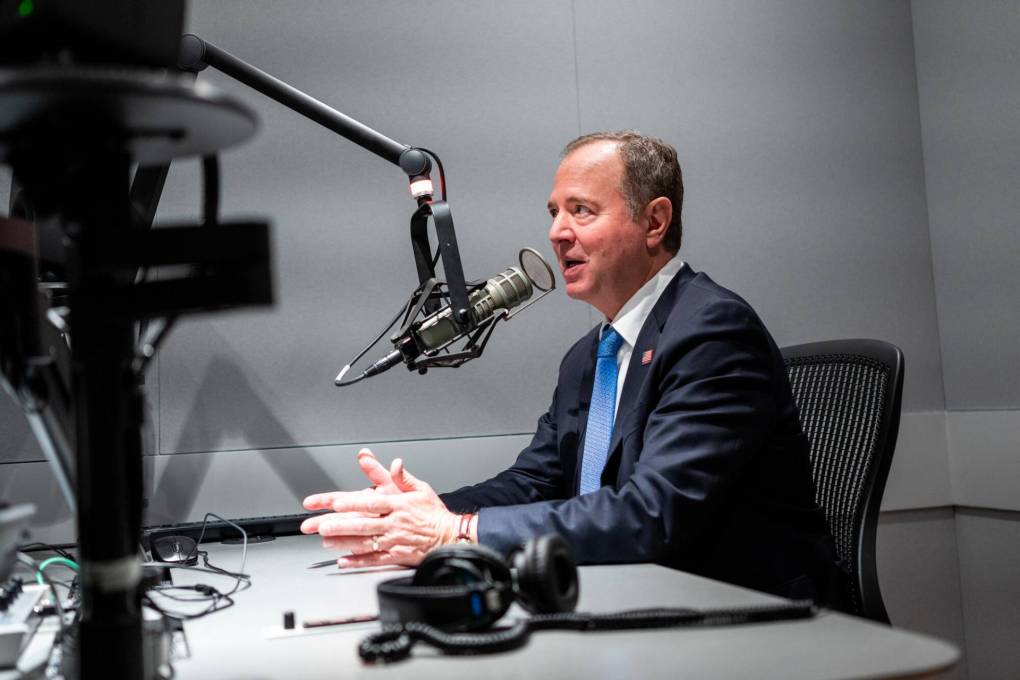
Regardless of official vote counts, Republican nominee Donald Trump is likely to declare victory, Schiff said — raising stark concerns over the former president’s refusal to accept the results of the 2020 election and the violent insurrection that followed.
“He has already been propagating that same big lie that he did four years ago, and we saw where that led on January 6th,” Schiff said. “So I am profoundly concerned about it.”
Read more here.
There’s big money behind a push to unseat progressive SF politicians
While San Francisco’s mayoral race is likely the most expensive in at least 20 years, money is also pouring into Board of Supervisors elections — especially where battles are brewing between progressive incumbents and candidates running to their right.
Much of the money is being raised and spent by moderate political action groups, which have grown in numbers and power over the last four years. This year, the wealthy tech investors and real estate interests backing the groups are angling to have an outsize say in some of the city’s tight races.
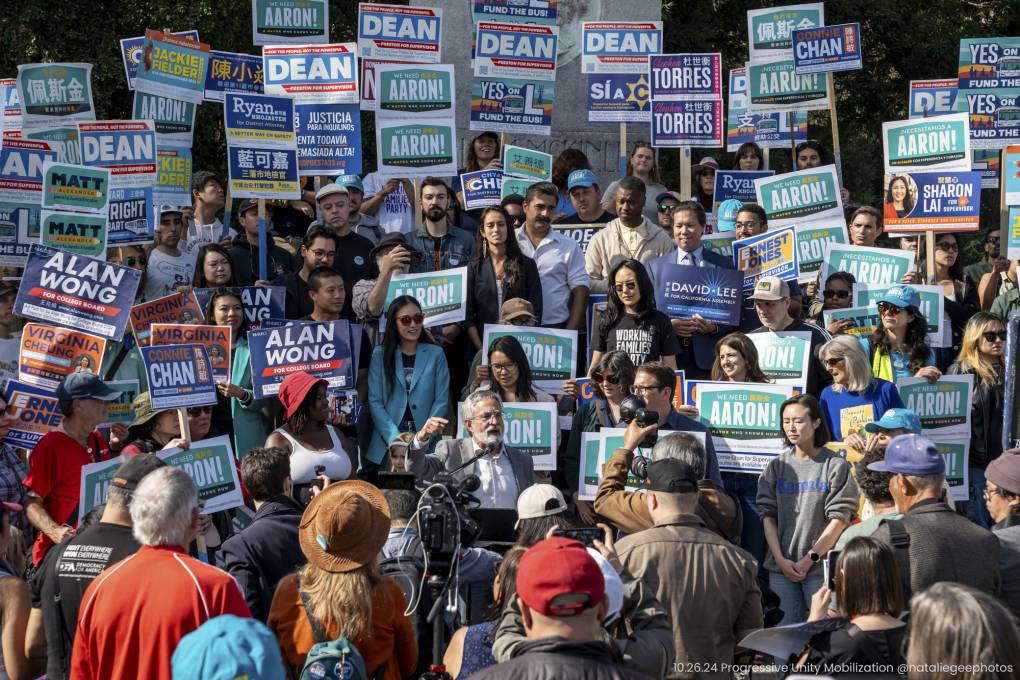
In this consequential election cycle, they’ve been pushing for a harsher crackdown on homelessness and the fentanyl crisis, more market-rate housing, public school reform and other issues.
Read more here.
Big impacts on family farms on the Sonoma County ballot
Sonoma County voters are deciding on a controversial measure that could drastically change the future of farming in the historically agricultural county.
Measure J would place strict limits on animal farming, banning any farm that meets the federal definition of a Concentrated Animal Feeding Operation.
Advocates, including the animal rights group Direct Action Everywhere, say that larger animal farms pollute the environment and are more likely to mistreat animals.
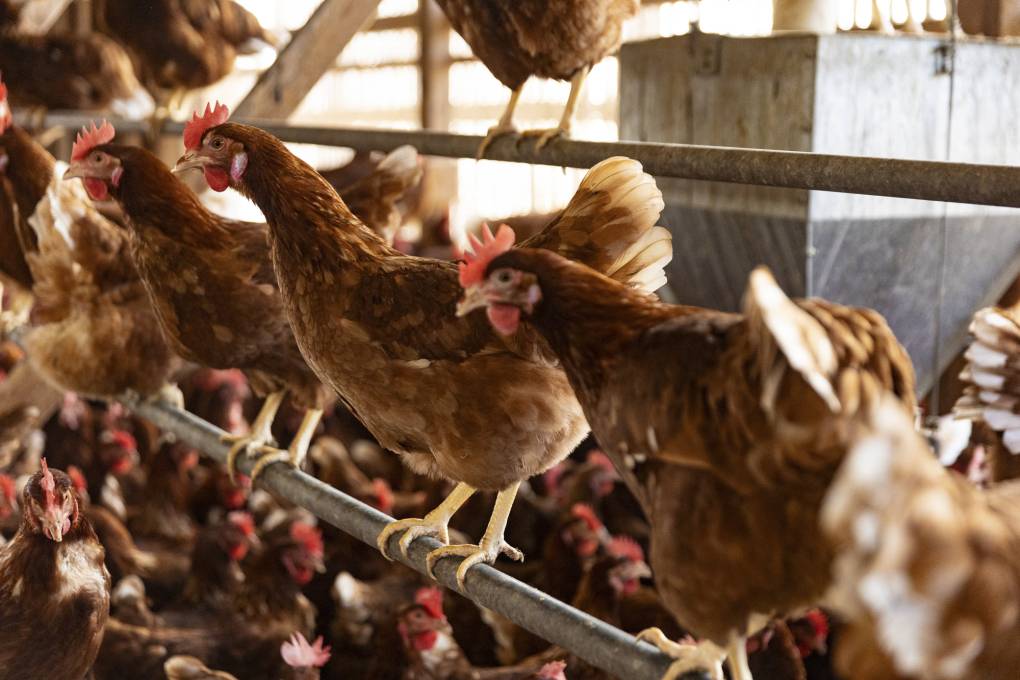
Local farmers, politicians and business groups overwhelmingly oppose the measure, arguing that it would put long-standing family-owned farms out of business and necessitate trucking in meat and dairy from outside the county. If the measure passes, advocates vow to place similar measures on the ballot in other counties.
Hang out with KQED on Discord
Election Night brings the feels. Are you anxious? Are you cautiously optimistic? If you want some company as the election results roll in, come hang out in KQED’s newsroom tonight. We’ll be streaming behind-the-scenes video on Discord all night long. So come hang with Otis R. Taylor Jr., KQED’s managing editor of news and enterprise. He’ll be talking about election results, and chatting with reporters and editors on Discord. To join, go here.

Long lines of UC Berkeley students turn out to vote on campus
Voters on UC Berkeley’s campus were waiting well over two hours to cast their votes Tuesday afternoon. Ethan Hersey and Kaylene Son were close to the front of a line of more than 300 students that’s extended across Sproul Plaza all day.
“It’s pretty important to a lot of Berkeley students that their voices are heard,” Hersey, 21, told KQED’s Dan Brekke. It’s both his and Son’s first election.
“It’s extraordinary,” said Sandra Bass, Berkeley’s senior associate dean of students. “I work with students every day and you’re hopeful that they’re hearing the messages and understanding the importance of voting, but I wasn’t really sure what would happen. Now that they have been out here for hours waiting patiently to cast their ballots, it’s just so exciting.”
The on-campus polling place has been open for four days, and Bass said it’s been busy throughout.
“I don’t remember a line like this any time that I voted,” she said. “It just gives me so much encouragement to see this.”
Rebecca Mirvish stopped by the line, even though she had already cast her ballot at a drop box at City Hall.
She voted in the presidential race but said she feels like she can have a bigger impact in local races. She’s been working on the campaign for Measure FF, one of two competing infrastructure measures, and is hopeful about its chances.
“I am hopeful the people in Berkeley vote for the streets measure that is forward-thinking and cares about safety rather than just maintaining the status quo,” she said. “Students seem to be super excited about voting Yes on that.”
Preparing for potential post-election unrest
State and local law enforcement officers are preparing for the possibility of mass protests — and even violent riots — if Republican nominee Donald Trump wins the 2024 presidential election.
His 2016 election win touched off a week of continuous protests across the Bay Area, including in Oakland, Berkeley, San Francisco and San José. A few turned violent, including at some schools across the region.
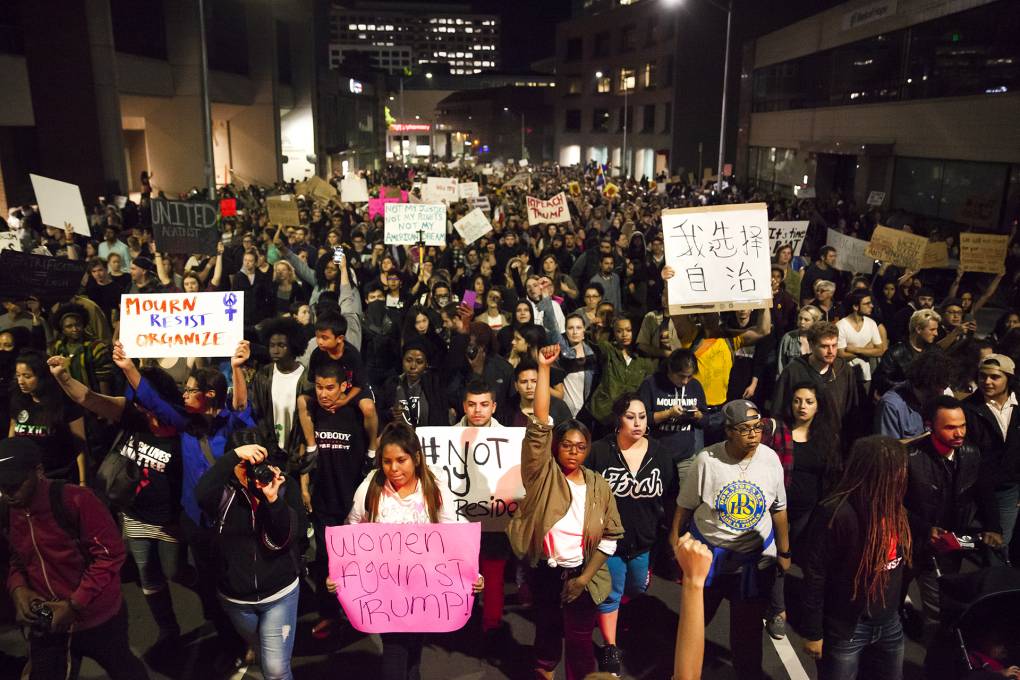
“There was a lot of vandalism, destruction, things set on fire, things like that,” said Huy Nguyen, president of the Oakland Police Officers’ Association.
Law enforcement agencies are calling for peaceful demonstrations this week should there be similar unrest as election results roll in.
Read more here.
Californians weigh banning involuntary servitude in prisons
California voters will decide today whether to restrict forced labor in state prisons, becoming the latest state to remove an exception for involuntary servitude from the state constitution.
Proposition 6 would prevent state prison officials from punishing incarcerated people who refuse a work assignment such as cooking or cleaning.
An October poll from the Public Policy Institute of California found the measure struggling to gain traction, with just 41% of likely voters voicing support for the idea.
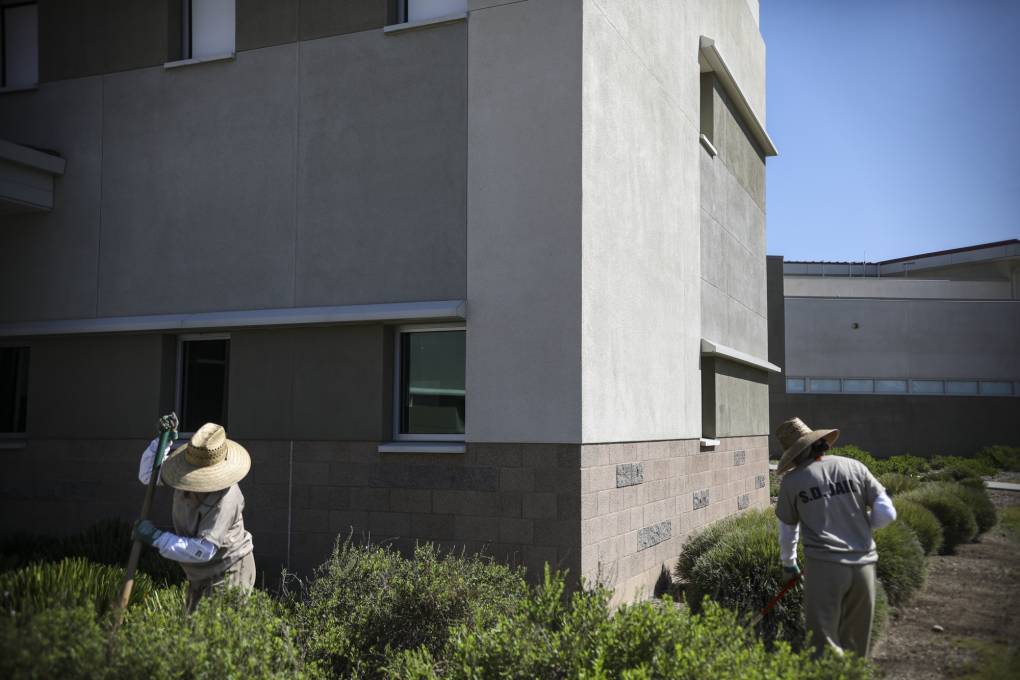
While supporters of Proposition 6, which include criminal justice reform and civil rights groups, have outspent opponents, the campaign has largely flown under the radar in a tumultuous election year.
The result will provide another test for the movement to provide reparations for Black Californians, as the language in Proposition 6 mirrors a proposal from the state Reparations Task Force — and members of the California Legislative Black Caucus made it a priority to win the necessary support for the measure to place it on the ballot.
Team Farrell had a double-decker bus. Team Breed's got a cable car
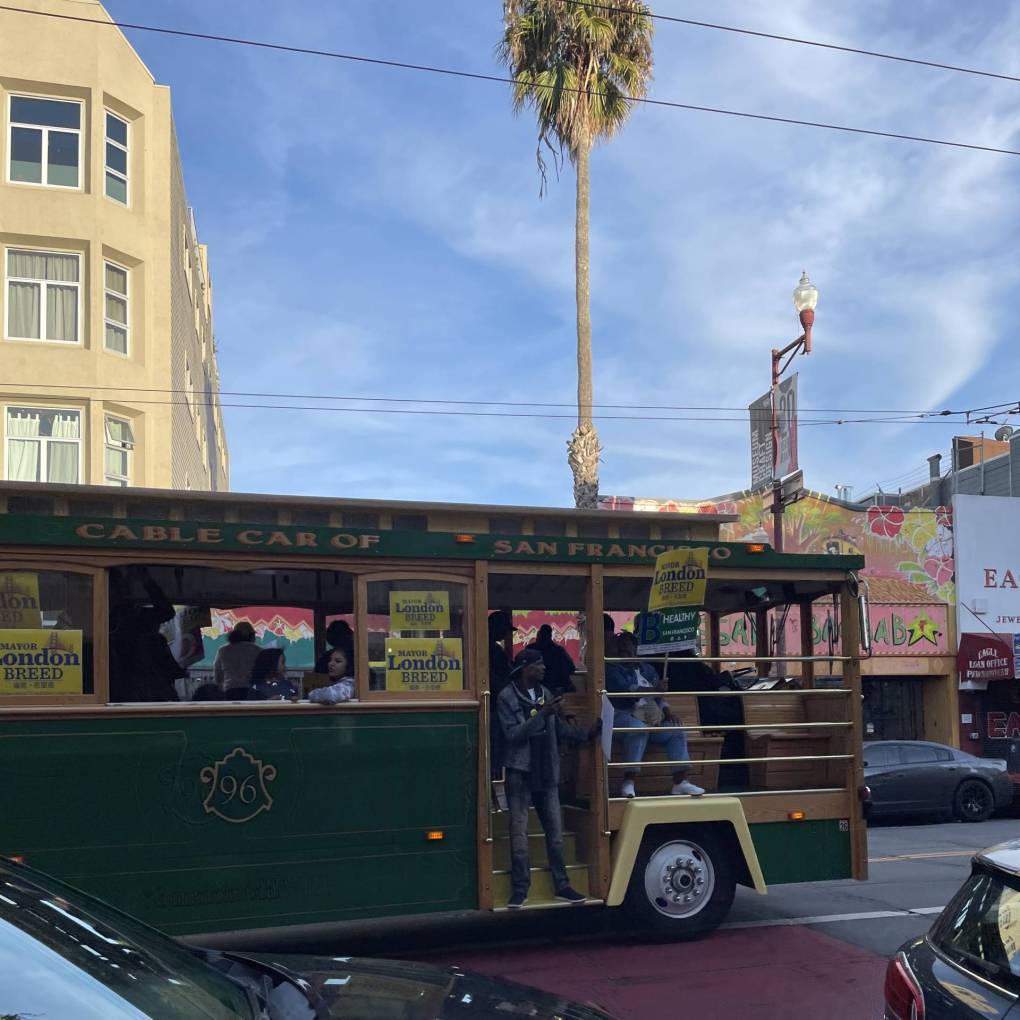
KQED’s Azul Dahlstrom-Eckman spotted supporters of San Francisco Mayor London Breed riding down Mission Street in a motorized cable car. Not long before, supporters of challenger Mark Farrell packed a double-decker bus outside City Hall. Now which camp is going to take over a ferry?
Alameda County voters to select replacements for 2 long-serving East Bay politicians
Rep. Barbara Lee is stepping down after 26 years serving the East Bay in Congress.
BART Board Director Lateefah Simon is the Democratic Party’s favorite to replace her in the race for the District 12 seat. She’s been endorsed by Lee, Gov. Gavin Newsom and Sen. Alex Padilla.
Simon’s opponent, newcomer Jennifer Tran, a CSU East Bay ethnic studies professor, isn’t going down without a fight. Tran, the president of Oakland’s Vietnamese Chamber of Commerce, has criticized Simon for not agreeing to a debate and protested what she calls “corporate mega-party” lining up behind Simon without giving her a fair consideration.
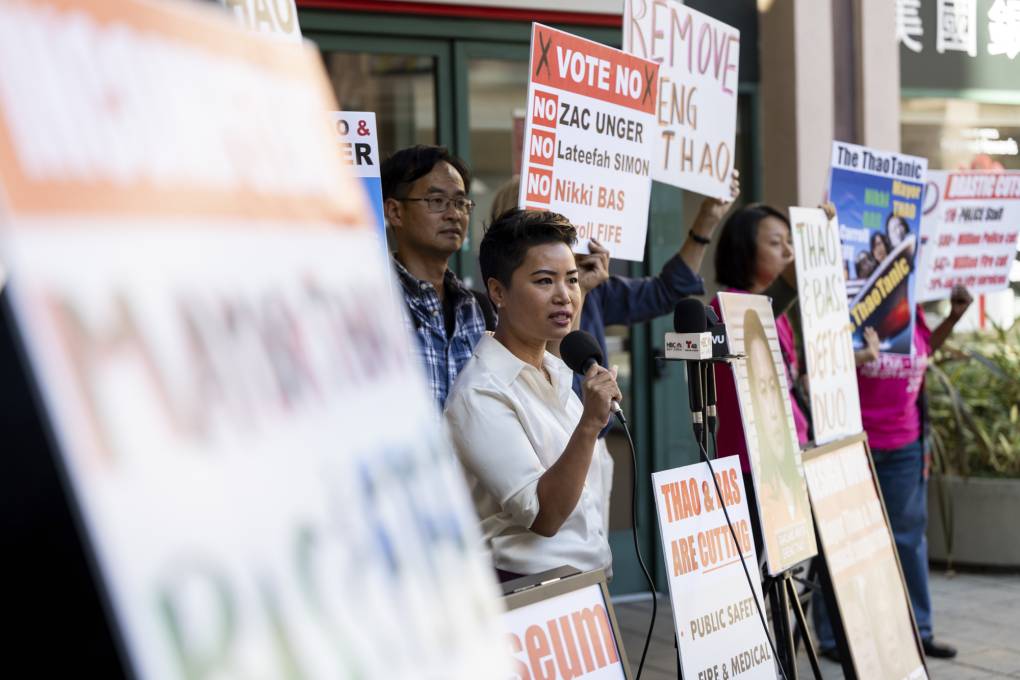
And after more than 30 years on the Alameda County Board of Supervisors, Keith Carson is retiring. Oakland City Council President Nikki Fortunato Bas is facing off against Emeryville City Councilmember John Bauters for the seat.
The two have similar policy platforms. The race has become one of many proxy battles between progressives and moderates in the East Bay, with progressives lining up behind Bas and moderates behind Bauters.
Need a haircut? Got a ballot?
At Ana’s Hair Salon in San Francisco’s Mission District, you can get a haircut — and cast your ballot.
“There are people literally getting their hair cut next to people voting,” said KQED’s Azul Dahlstrom-Eckman, who stopped by the polling place this afternoon.
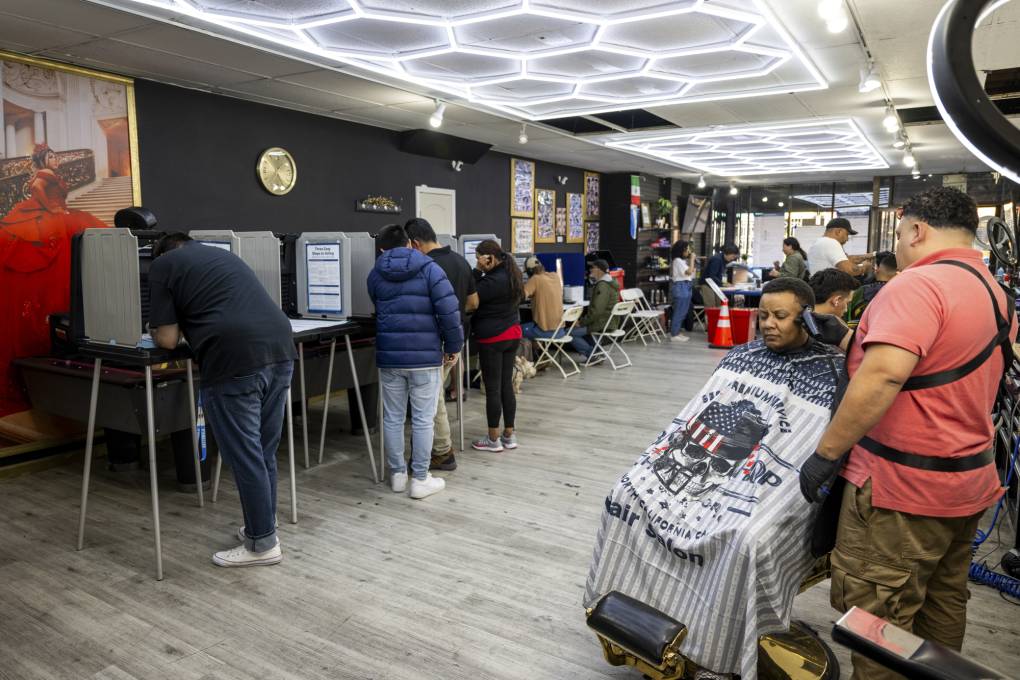
It’s one of 501 neighborhood polling places around San Francisco, which includes schools, fire houses and, yes, hair salons.
Francisco Garcia is a lifelong resident of the Mission who always casts his ballot at Ana’s (but gets his hair cut elsewhere). Today, he was glad to weigh in on local ballot measures.
“I’ve been here literally my whole life, on this block. So what goes on within my district and San Francisco overall, it touches more to heart,” he said.
San Franciscans decide whether to turn the Great Highway into a park
Proposition K has been of the most contentious election fights in San Francisco during this election cycle.
If passed, the measure would ban all car traffic on the Upper Great Highway between Lincoln Way and Sloat Boulevard and be a big step in turning the road into a public recreation space. Emergency vehicles will still have access to the road.
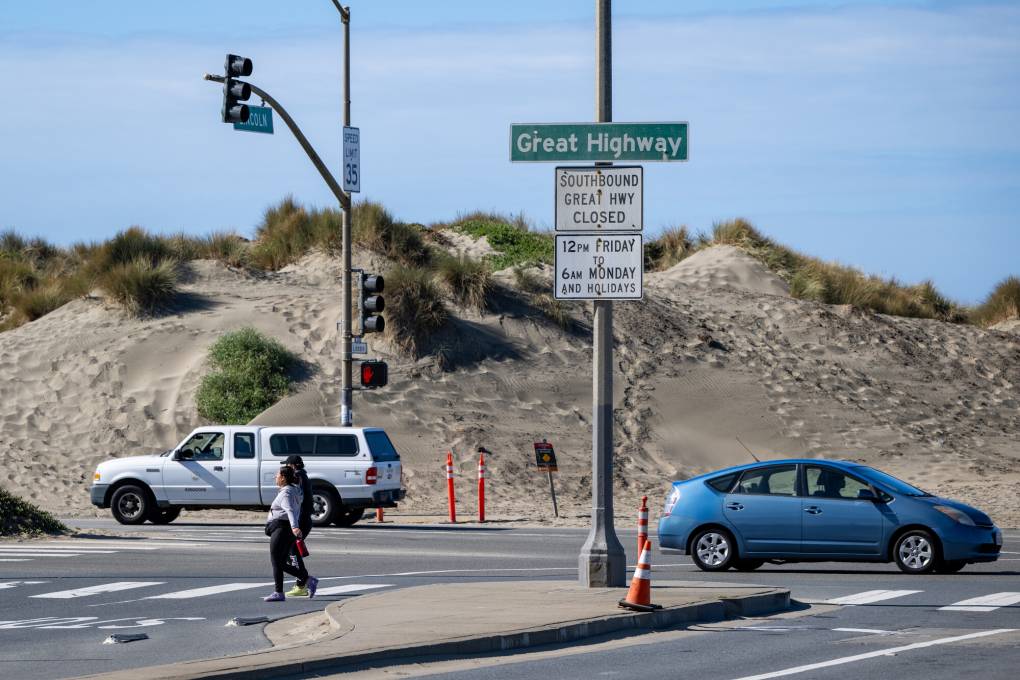
Banning cars would allow the city to rehabilitate dunes as a buffer against erosion and rising seas. Opponents argue that permanently closing it will increase traffic and congestion in nearby neighborhoods. Proposition K requires a majority Yes to pass.
Spray-painted messages about ‘genocide’ at Arcata polling places
Four polling places in the Northern California town of Arcata were vandalized on the eve of Election Day with messages reading, “No election, insurrection” and “Genocide is not a ‘lesser’ evil.”
Photos also showed flyers pasted onto community center windows with “Free Palestine” and other messages. Blocks away, the local Cal Poly Humboldt campus has been the site of ongoing pro-Palestinian protests and activism for months.
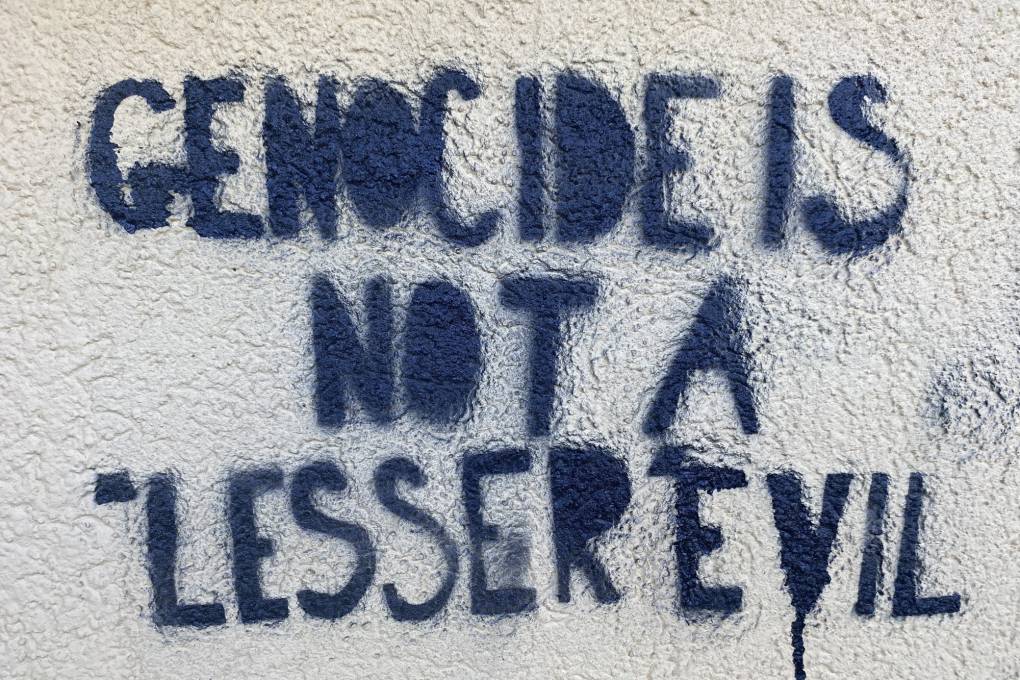
“I take all of this vandalism extremely seriously, especially on Election Day,” Arcata Mayor Meredith Matthews said. “I think Election Day is sacred.”
Read more here.
Californians to decide fate of $10 billion climate bond
The goal of Proposition 4 is to help prepare Californians for the impacts of climate change, mainly in the form of infrastructure projects.
It dedicates $10 billion for safe drinking water, drought, flood programs, wildfire prevention, coastal resiliency and mitigating sea level rise. It would also address extreme heat and create nature-based solutions. The proposition requires at least 40% of the funds for projects that benefit disadvantaged communities.
According to a state report, not intervening would cost Californians $113 billion annually by 2050. Environmental groups spent nearly $9 million on the bond; the opposition spent nothing.
Raise your hand if you’ve ever felt personally victimized by the NYT needle
The notorious New York Times election needles are seared into the memories of many voters, but whether these forecast barometers will go live Tuesday evening is unknown due to a strike of tech workers at the publication.
As one user on social media platform X said after chief political analyst Nate Cohn announced he was unsure whether the feature would be on the New York Times site on election night: “We need a needle on whether there will be a needle.”
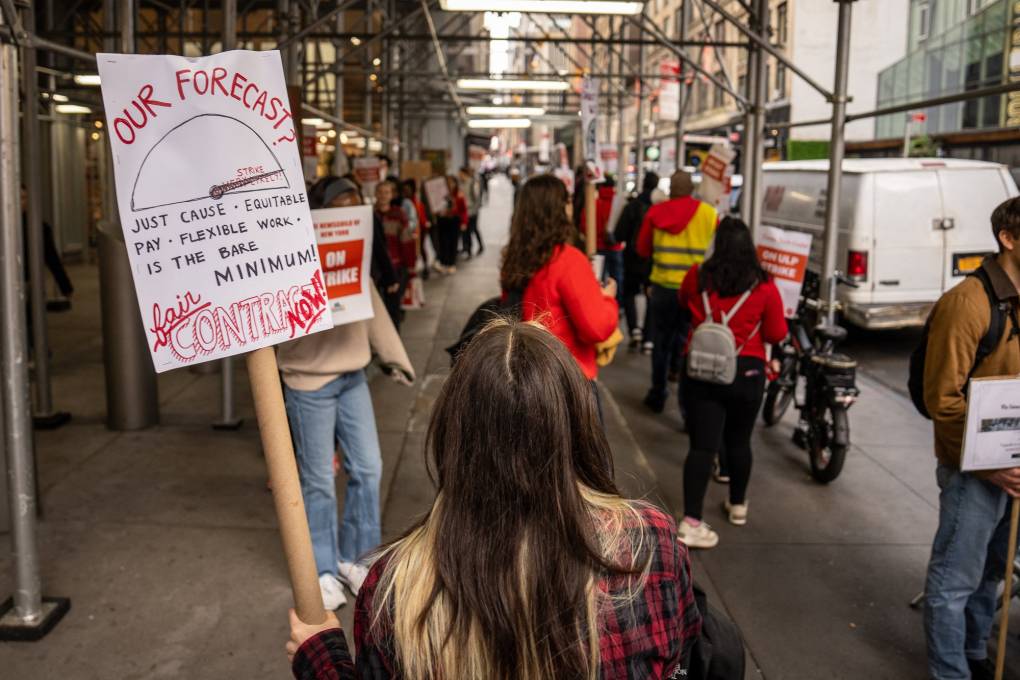
The needle may or may not be available as swing states projecting razor-thin margins start reporting results on Tuesday night.
Although the striking tech workers don’t have a hand in the New York Times prediction model, Cohn said, they usually maintain the algorithmic infrastructure that feeds data to the needle and handle technological issues across all of its other data pages quickly on election nights.
Read more here.
One supervisor seat up for grabs in San Mateo County
Two candidates are facing off in San Mateo County’s Board of Supervisors race.
The winner in the District 4 race will have the chance to shape policy across the county, from policing to jobs to solutions for flooding.
The county faces significant development plans, increasing impacts from climate change and a rising cost of living — 76% higher than the national average. Since no candidate received over 50% of the primary vote, voters will choose from the top two — East Palo Alto City Councilmember Lisa Gauthier or East Palo Mayor Antonio López.
Team Farrell packs a double-decker bus, and SF City Hall voters keep traditions alive
Outside San Francisco City Hall, supporters of mayoral candidate Mark Farrell rode around on a packed double-decker bus.
Despite Farrell’s being hit with a massive campaign finance fine on the eve of the election, vibes appeared high.
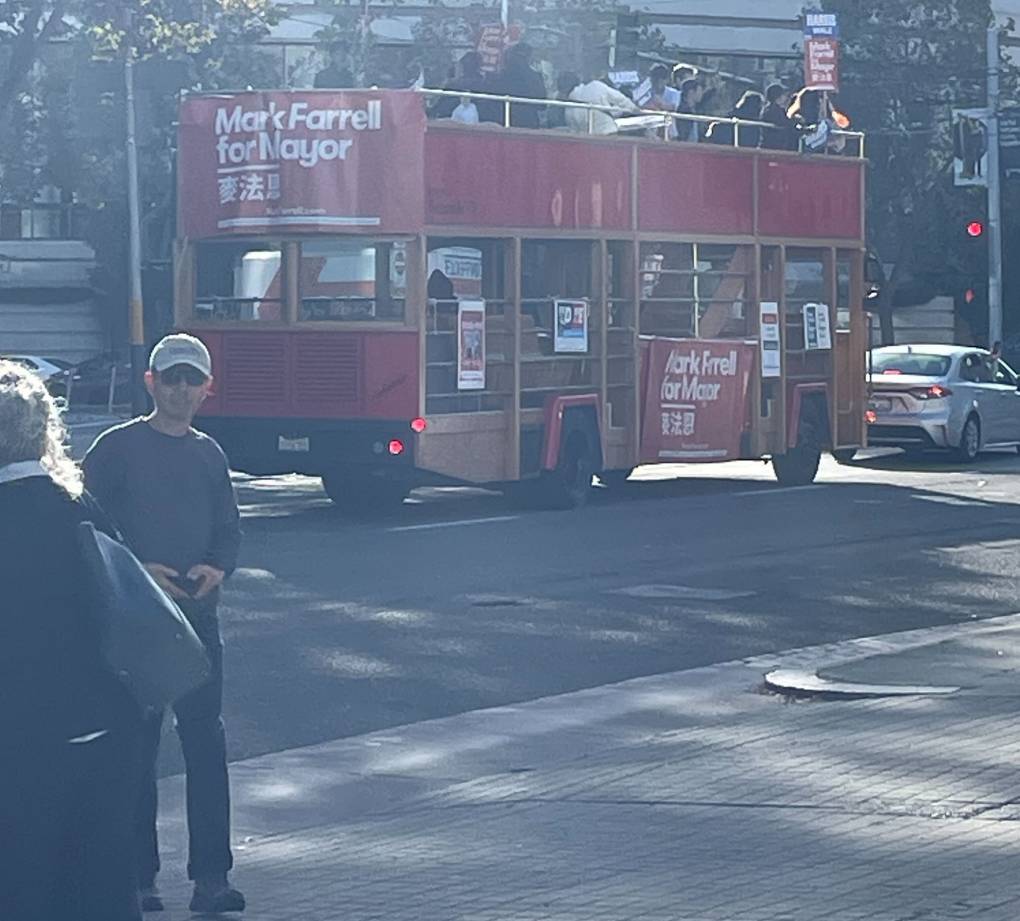
But inside the polling place, not everyone was feeling so happy-go-lucky about their options for a city leader.
“I don’t know if the candidates who are running, except maybe a few, understand what the working class really goes through inside of San Francisco,” Francisco Harris told KQED’s Azul Dahlstrom-Eckman. “If you’re spending, you know, millions and millions of dollars on a campaign and you’re sending me 50 pamphlets, I think that money could be a little bit better served.”
Harris bears no relation to the Democratic presidential candidate — even though “I’m from Jamaica, too,” he said. “It’s funny, no connection!”
Still, he said the top of the ticket is what brought him out to the polls. As an immigrant, he said, it’s family tradition to show up in every election he can.
Kay and Leda Olinger also have a tradition. The mother-daughter duo have voted together in person whenever they’ve had the chance.
“We believe in voting,” Leda, 57, said. “Neither of us have missed a vote since we’ve been able to.”
“I probably would have beat her butt if she didn’t vote,” Kay, 89, joked.
Voting for Kamala Harris today felt like an especially big deal to them both.
“A woman president, I like that,” Kay said.
California weighs enshrining same-sex marriage
California voters are considering a constitutional amendment declaring marriage a “fundamental right” and removing language that qualifies it as “between a man and a woman.”
Supporters say Proposition 3 will protect Californians from potential challenges to the Supreme Court decision that legalized same-sex marriage nationally in 2015. Conservative religious groups argue the change opens the door to state-sanctioned polygamy and child-marriage.
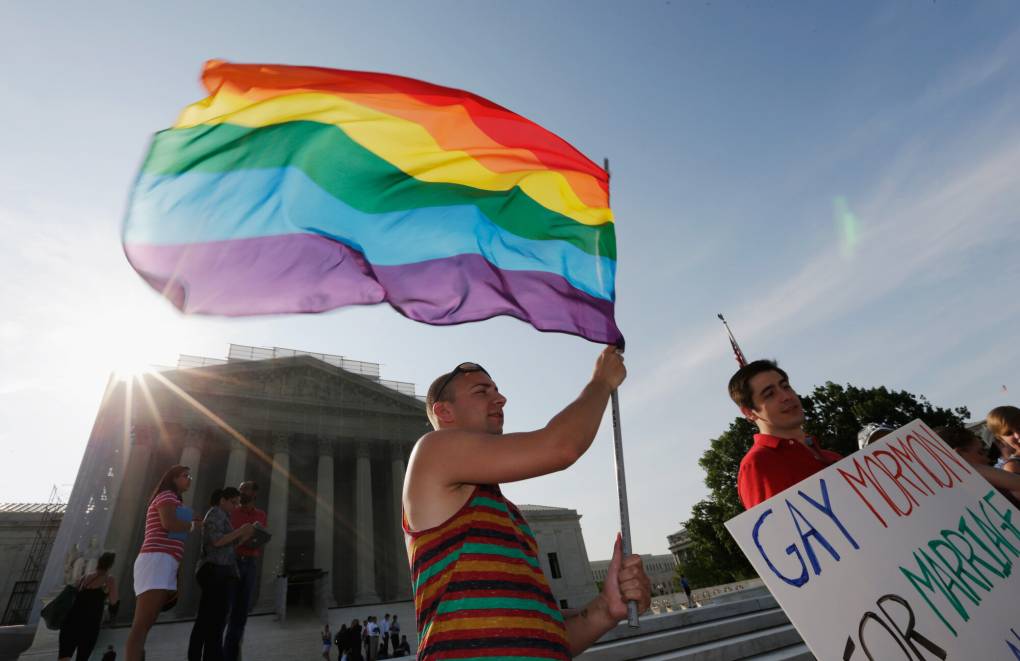
Proposition 3 does not change the legal age for marriage, which is 18 without parental consent. A recent poll showed strong support for the proposition. Voters last approved a constitutional amendment in 2022, which protected the right to abortion.
Bay Area election officials report high voter turnout
Bay Area voters are showing up today.
Many election officials across the region are expecting voter turnout at 80% or higher — which would far surpass the March primaries and is on par with previous presidential election years.
“We have high turnout, which means we are replenishing supplies,” said Lynda Roberts, registrar of voters in Marin County, where over half of registered voters had already submitted their ballots as of Tuesday morning. “Other than that, everything is running smoothly.”
In San Mateo County, voter registration set a new record, with more than 445,000 out of the county’s 513,000 eligible voters registered to vote in this election.
As of Tuesday morning, voter turnout in Santa Clara County was at 48%, San Francisco was at 43%, and Solano County was trailing slightly, at about 40%, though those numbers will go up as more votes are tallied. Officials will update them after polls close at 8 p.m.
Proposition 5 could change the way cities fund affordable housing, infrastructure
Californians could change the way cities and counties fund affordable housing and public infrastructure projects in their districts with their decision on Proposition 5.
The statewide initiative would lower the voting threshold needed to pass bonds for affordable housing and infrastructure projects.

Right now, those bonds require 66.67%, a two-thirds supermajority, to pass. Today, many of those bonds fail, despite more than 50% of voters favoring it. If Proposition 5 passes, those bonds would only need 55% of votes to pass.
A number of local bond measures, including San Francisco’s Proposition B (funding hospital repairs and infrastructure) could also pass if Proposition 5 is approved.
Berkeley voters cast ballots far from home
In the college town of Berkeley, lots of people are voting far from home. Melissa Quilter, 65, cast her ballot at the North Berkeley Library drop box, almost 1,000 miles from her hometown of Priest Lake, Idaho.
“I have the pan-American view,” she joked, speaking with KQED’s Dan Brekke outside the drop-off location, where there was a steady stream of voters dropping ballots, chatting with neighbors and listening to classical tunes from a chamber music group.
“I’ve already had a tongue lashing from some friends in north Idaho. But they’ve known four generations of my family. We’ve all been Democrats — which puts us in the minority out there.”
Quilter said she hopes people are voting with a focus on future generations of Americans.
Alma Halgren, 27, voted at nearby Epworth United Methodist Church, which poll workers said has been slammed since opening this morning. Halgren, a current doctoral student, has been in Berkeley since starting her undergraduate degree nine years ago. She said she hasn’t followed local races super closely.
As a cyclist, though, she is invested in the city’s dueling infrastructure measures — “No on EE, Yes on FF,” she said.
Fellow Berkeley student Nola, 24, who declined to share her last name for privacy reasons, isn’t quite so far from home. She grew up across the bay in San Francisco, and said one of her priorities this election is making sure she can move back one day.
“I’d like to be able to afford to live in the same place I was born in, and that seems to be difficult, or at least is more like a distant possibility,” she told KQED.
South Bay voters to decide races for Congress, Legislature and supervisor
A heated race for an open seat in Congress headlines the multiple contests up for grabs today in Santa Clara County, where voters will also elect two new members to the county Board of Supervisors.
In the 16th Congressional District, which stretches from Pacifica to Los Gatos, former San José Mayor Sam Liccardo and state Assemblymember Evan Low, both Democrats, have waged a pitched battle for the seat currently held by Rep. Anna Eshoo, who did not run for reelection.
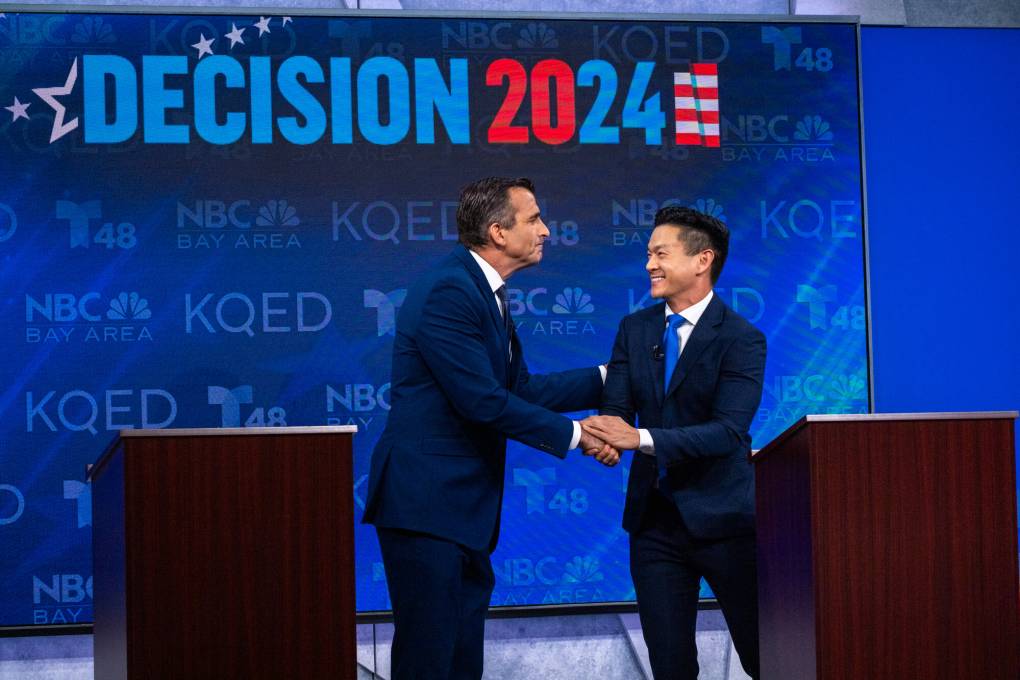
On the county’s Board of Supervisors, Cindy Chavez and Joe Simitian have both reached term limits, leaving seats open in the 2nd and 5th districts.
Madison Nguyen and Betty Duong are squaring off in the race for the 2nd District, with the winner poised to make history as the county’s first Vietnamese American supervisor. And in the 5th District, Mountain View Councilmember Margaret Abe-Koga faces Sally Lieber, a member of the State Board of Equalization.
Oakland voters decide whether to keep their mayor
Oakland voters are weighing whether to recall Mayor Sheng Thao, who has been in office less than two years. Thao faces a tide of criticism over crime, the city’s multimillion-dollar budget deficit and her decision last year to fire Oakland Police Chief LeRonne Armstrong.
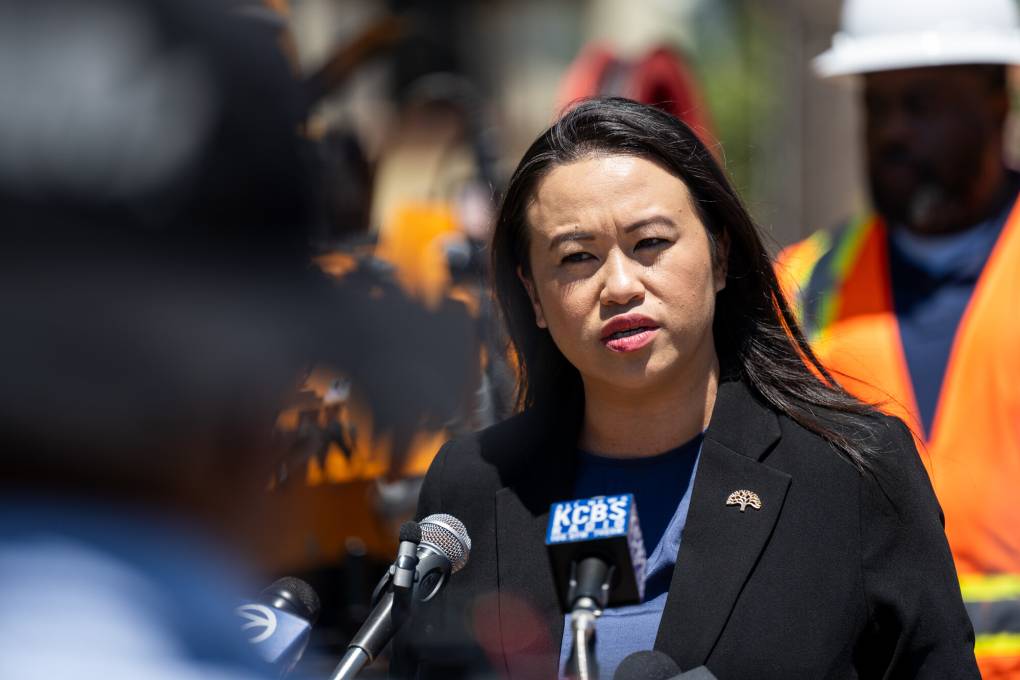
Thao and her supporters argue that many of Oakland’s problems existed before she entered office, and accused the recall’s main funder, a hedge fund manager named Philip Dreyfuss, of “trying to buy our city government.”
If the recall is successful, Oakland could see a rotating cast of mayors in the next several months.
Rent control is all over the ballot
Rent control! Around the Bay Area, rent control and eviction protections are on the ballot in Berkeley, and three Marin County cities: Larkspur, Fairfax and San Anselmo. And there’s also two statewide propositions.
Proposition 33 would repeal a 1995 law that limits how far local governments can go with their rent control laws, allowing cities and counties to regulate rents on all types of properties and for new tenants. It would also bar the state from passing any new laws limiting local rent control.
On its face, Proposition 34, which would restrict how certain health care providers can spend revenue from prescription drug sales, has nothing to do with rent control, but really, a landlord lobbying group is behind the measure, which applies to a single provider who’s one of the state’s biggest rent control advocates.
It’s all about the politics of these controversial policies.
High fire danger has some Oakland voters diverted to a new polling station
With a red flag warning in effect across much of the Bay Area, Alameda County election officials closed one polling station in the Oakland hills and diverted voters to a nearby middle school to cast their ballots.
Oakland resident Ben Udo discovered his polling station at Joaquin Miller Center was closed after looking online for the nearest place to drop off his ballot.
“It was still a pretty easy drive,” he said of his new polling station at Montera Middle School.
Separately, five other polling stations across Northern California are likely to lose power tonight, according to PG&E, though the utility said it will wait until the polls close at 8 p.m. to start its public safety power shut-off.
Read more here.
Will Alameda County recall its progressive prosecutor?
Voters have a few hours left to weigh in on whether to recall Alameda County District Attorney Pamela Price.
In 2022, Price defeated Terry Wiley, a longtime leader in the DA’s office, replacing outgoing DA Nancy O’Malley. Price ran as a progressive outsider with a reformist vision for the criminal justice system. Her election marked a major transition within the DA’s office. Notably, O’Malley endorsed Price’s opponent and has since supported her recall.
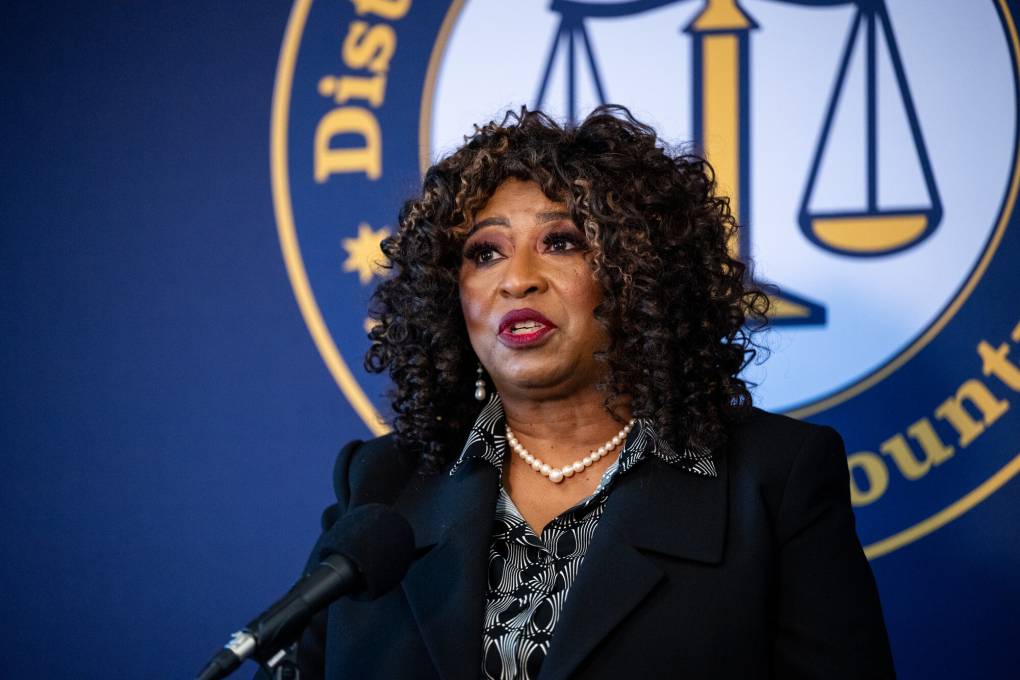
The push to recall Price, which started six months into her tenure, comes amid a statewide backlash against progressive prosecutors. Recall supporters blame Price’s policies for increased crime rates in 2023, dispute data from the Oakland Police Department that shows crime rates falling in 2024, and accuse Price of committing ethical violations, failing to adequately support victims’ families and mismanaging her office.
Her supporters, including the ACLU of Northern California, Oakland Rising, and the Oakland-based Latino Task Force say Price hasn’t had enough time to prove whether her policies work. They say recall supporters opposed Price in 2022 and are bitter she won. Congresswoman Barbara Lee and State Sen. Nancy Skinner oppose Price’s recall, writing on social media that all recalls are “undemocratic, costly and chaotic.”
No Election Day jitters at John’s Grill
Willie Brown’s annual Election Day luncheon — the place to be for San Francisco candidates, staff, and politicos — was well attended Tuesday. KQED’s Sydney Johnson was there as thousands waited in line at John’s Grill near Union Square for steaming plates of ravioli and free glasses of wine after a morning of last-minute campaigning.
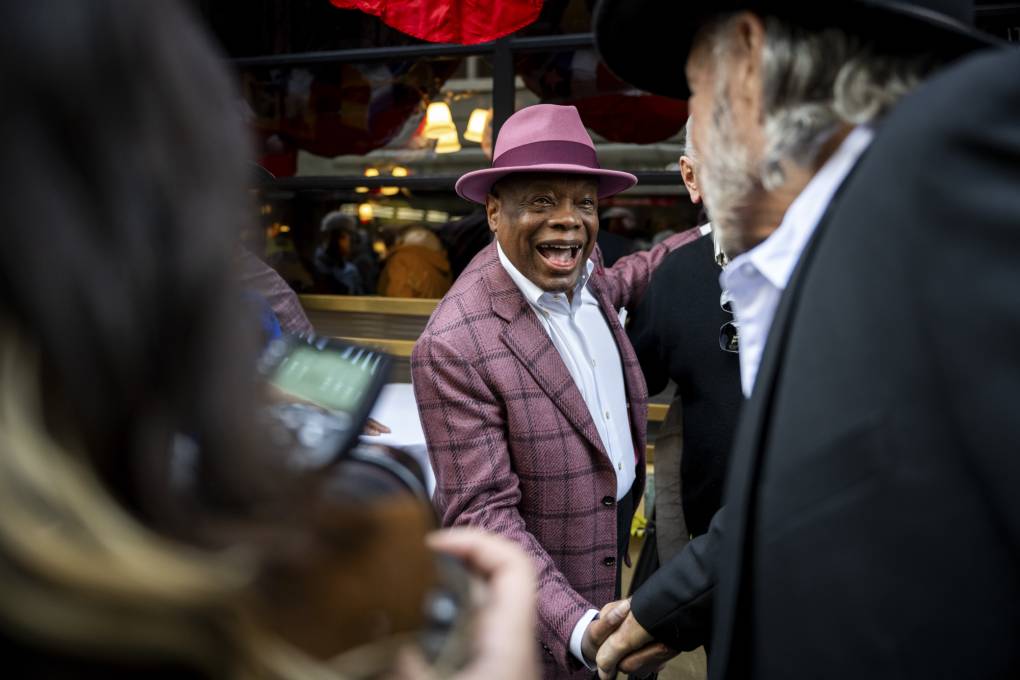
Brown, who sat by the door shaking hands and taking selfies, called today’s event the first in the country celebrating Vice President Kamala Harris’ (very much still undecided) victory.
When asked if he was feeling pretty good about the outcome, the former San Francisco mayor and California Assembly speaker responded, “Oh, are you kidding me?” with a laugh.
On the city’s hotly contested mayoral race: “London [Breed] should win,” Brown told KQED.
San Francisco mayor’s race down to the wire
San Franciscans will decide tonight whether to re-elect incumbent Mayor London Breed or usher in a new mayor.
Breed’s opponents to the right and the left — Mark Farrell, a former interim mayor and supervisor; Board of Supervisors President Aaron Peskin; and philanthropist Daniel Lurie — have vowed to improve public safety, homelessness and the city’s housing crunch.
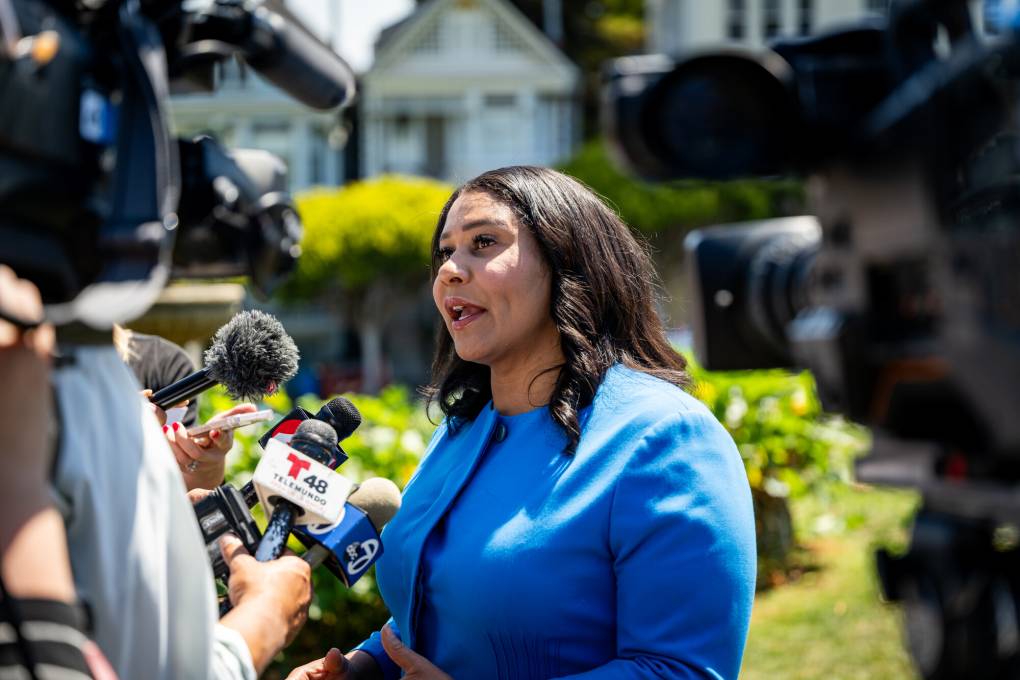
Polls show it’s a tight race among the four leading Democrats.
It has been one of the most expensive campaigns in San Francisco’s history with multi-million-dollar contributions from several of the city’s wealthy tech elite. San Francisco uses ranked-choice voting, and it’s unlikely that a candidate will get the majority (50% +1) needed to immediately win tonight.
All eyes on Bay Area native Vice President Kamala Harris
A Californian is the nominee for president for the first time since 1984. Vice President Kamala Harris, who was born in Oakland and spent formative years in the East Bay, faces off against former President Donald Trump in an election both have cast as the most important of their lifetimes.
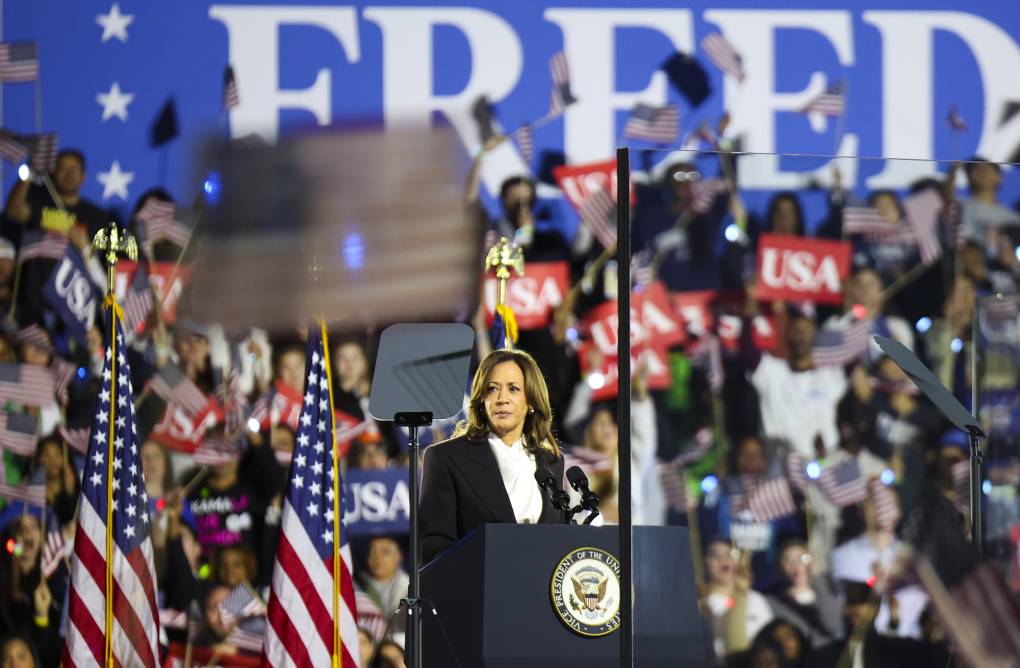
Harris, a former San Francisco district attorney, California attorney general and U.S. senator, has spent the end of her truncated campaign barnstorming across the seven states considered up for grabs: Wisconsin, Michigan, Pennsylvania, Georgia, North Carolina, Arizona and Nevada.
She will spend election night at Howard University in Washington, D.C.
Election Day is here and KQED has you covered
While most political observers’ eyes will be glued to the neck-and-neck presidential race Tuesday evening, that isn’t all KQED reporters and editors will be watching.
With 10 statewide ballot measures, a U.S. Senate seat up for grabs, a hotly contested San Francisco mayoral election, controversial recalls for the Alameda County district attorney and Oakland mayor, and dozens of local measures and council seats to watch, we’ve got you covered.
KQED has dozens of reporters and editors monitoring the polls and fanning out across the Bay Area Tuesday night to bring you the news that matters to you. Follow along here for real-time updates on those measures and races, plus reports from watch parties — including Vice President Kamala Harris’ in Washington, D.C.
Stay tuned to this live blog and listen to KQED’s live coverage online or tune your radio dial to 88.5 FM for all the latest updates.
And, if you’re waiting until the last minute to fill out your ballot, check out KQED’s voter guide, with explanations on every statewide and Bay Area race and measure.